 Search by Keyword
|
 US picture sleeve
|
“YESTERDAY”
(John Lennon – Paul McCartney)
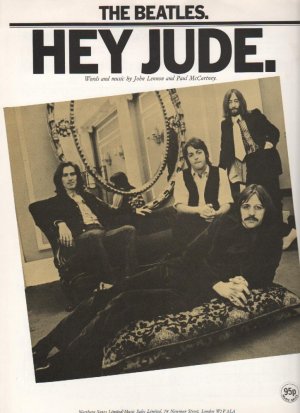 “I really reckon ‘Yesterday’ is probably my best song.” This humble statement from Paul McCartney typifies what many believe to be the truth as to his creative output throughout his career. Although when asked at different times through the years what his favorite original composition was, he came up with many answers. “Your songs are like your babies, it’s difficult to have a favorite,” he said in 2007. “Here, There And Everywhere” has been stated regularly, although “Hey Jude,” “Blackbird” and “Here Today” have been cited. He also once included “Maybe I’m Amazed” as one of his favorites, saying “that’s a nice song, I like that one.” “I really reckon ‘Yesterday’ is probably my best song.” This humble statement from Paul McCartney typifies what many believe to be the truth as to his creative output throughout his career. Although when asked at different times through the years what his favorite original composition was, he came up with many answers. “Your songs are like your babies, it’s difficult to have a favorite,” he said in 2007. “Here, There And Everywhere” has been stated regularly, although “Hey Jude,” “Blackbird” and “Here Today” have been cited. He also once included “Maybe I’m Amazed” as one of his favorites, saying “that’s a nice song, I like that one.”
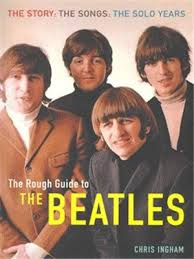 In 1980, Paul explained why “Yesterday” could be described as his best song. “I like it not only because it was a big success, but because it was one of the most instinctive songs I’ve ever written.” Concerning the song being a “success,” it has been described as the most successful song in history. According to Chris Ingham’s book “The Rough Guide To The Beatles,” “It holds the record as the most recorded song in history, with over 2500 versions, and has been broadcast on American radio over seven million times.” In 1980, Paul explained why “Yesterday” could be described as his best song. “I like it not only because it was a big success, but because it was one of the most instinctive songs I’ve ever written.” Concerning the song being a “success,” it has been described as the most successful song in history. According to Chris Ingham’s book “The Rough Guide To The Beatles,” “It holds the record as the most recorded song in history, with over 2500 versions, and has been broadcast on American radio over seven million times.”
As to the song being "instinctive," Paul’s explanation of how it was written has passed into the category of legend, as we’ll investigate below.
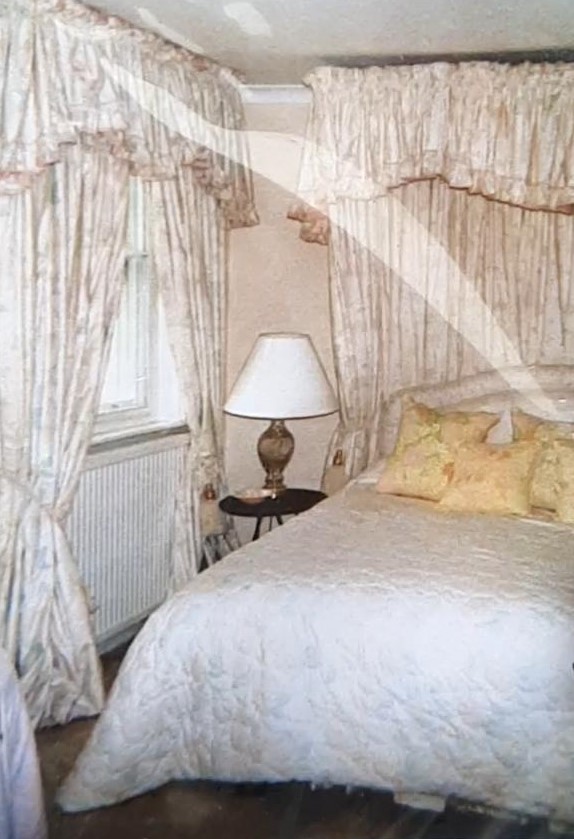
Paul's bedroom at 57 Wimpole St, London (as it looked in more recent years) where he wrote "Yesterday"
Songwriting History
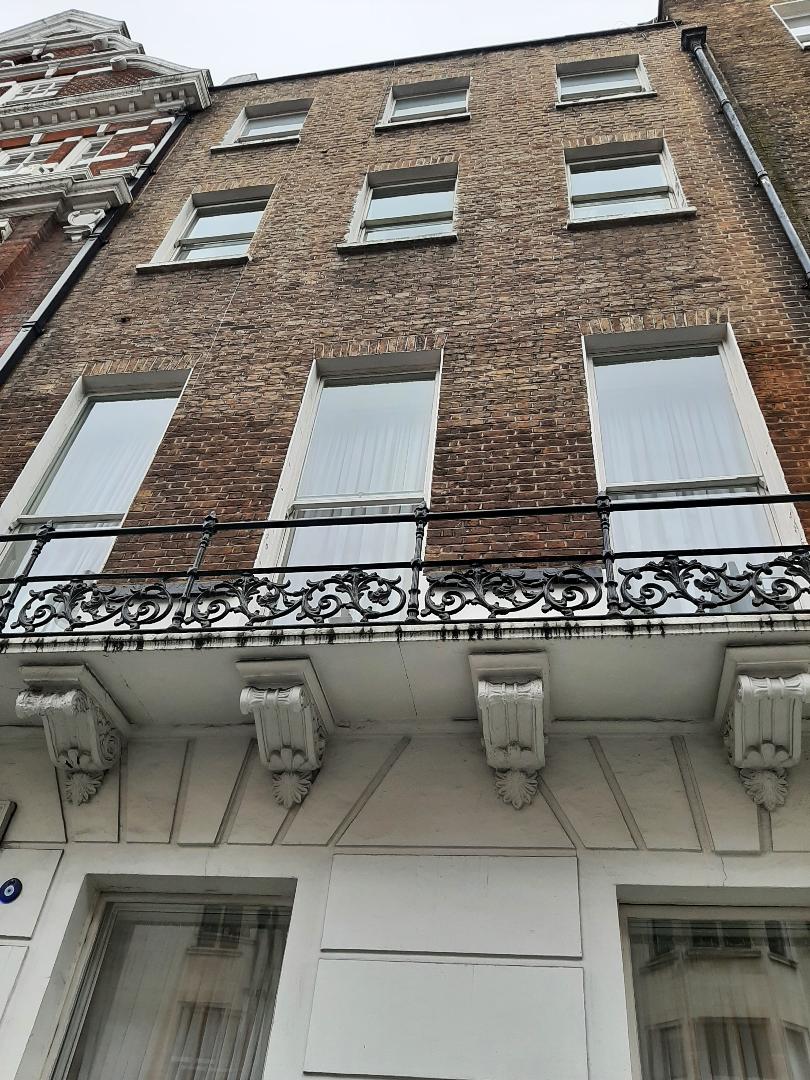 The song began being written at 57 Wimpole Street, London, the family home of Richard and Margaret Asher where Paul was living while dating their daughter Jane Asher. He slept in "a very small attic room with one window, a garret, perfect for an artist," Paul explains in his 2021 book "The Lyrics." "There wasn't any room for me to keep my records - many of which had been mailed to me from the US before they were available in the UK - in there. They had to be kept outside on the landing. But somehow I had a piano in there - a small, sawn-off piano that stood by my bed." The song began being written at 57 Wimpole Street, London, the family home of Richard and Margaret Asher where Paul was living while dating their daughter Jane Asher. He slept in "a very small attic room with one window, a garret, perfect for an artist," Paul explains in his 2021 book "The Lyrics." "There wasn't any room for me to keep my records - many of which had been mailed to me from the US before they were available in the UK - in there. They had to be kept outside on the landing. But somehow I had a piano in there - a small, sawn-off piano that stood by my bed."
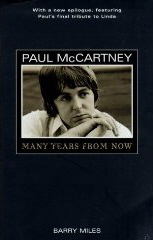 Paul vividly remembers the morning that the beginnings of the song "Yesterday" came into existance, as related in his 1997 book "Many Years From Now": "I woke up with a lovely tune in my head. I thought, ‘That’s great, I wonder what that is?’ There was an upright piano next to me, to the right of the bed by the window. I got out of bed, sat at the piano, found G, found F sharp minor 7th – and that leads you through then to B to E minor, and finally back to E. It all leads forward logically. I liked the melody a lot but because I’d dreamed it I couldn’t believe I’d written it. I thought, ‘No, I’ve never written like this before.’ But I had the tune, which was the most magic thing. And you have to ask yourself, ‘Where did it come from?’ But you don’t ask yourself too much or it might go away…There are certain times when you get the essence, it’s all there. It’s like an egg being laid – not a crack or flaw in it." Paul vividly remembers the morning that the beginnings of the song "Yesterday" came into existance, as related in his 1997 book "Many Years From Now": "I woke up with a lovely tune in my head. I thought, ‘That’s great, I wonder what that is?’ There was an upright piano next to me, to the right of the bed by the window. I got out of bed, sat at the piano, found G, found F sharp minor 7th – and that leads you through then to B to E minor, and finally back to E. It all leads forward logically. I liked the melody a lot but because I’d dreamed it I couldn’t believe I’d written it. I thought, ‘No, I’ve never written like this before.’ But I had the tune, which was the most magic thing. And you have to ask yourself, ‘Where did it come from?’ But you don’t ask yourself too much or it might go away…There are certain times when you get the essence, it’s all there. It’s like an egg being laid – not a crack or flaw in it."
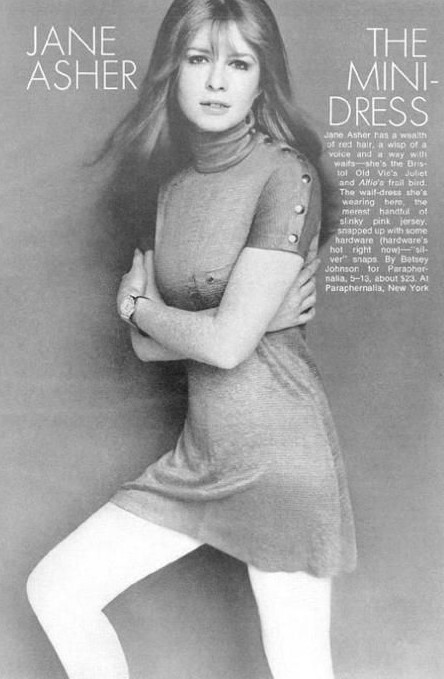 Speaking of eggs, so that his memory of the melody wouldn’t “go away,” he wrote some simple words to go along with the phrasing of the melody line. “It had no words. I used to call it ‘Scrambled Eggs.’ The lyrics used to go, ‘Scrambled eggs, oh, my baby, how I love your legs…’ There was generally a laugh at that point - you didn’t need to do any more lyrics.” In his book "The Lyrics," Paul adds: "Using dummy lyrics wasn't something I did a lot. It was a rare thing." Jane Asher once replied: “Don’t believe that part about ‘How I loved your legs.’ That’s bunk! My legs are horrid!” (And to set the record straight, Paul did not write a second verse that started “Cottage fries, oh, my baby, how I love your thighs.” ) :-) Speaking of eggs, so that his memory of the melody wouldn’t “go away,” he wrote some simple words to go along with the phrasing of the melody line. “It had no words. I used to call it ‘Scrambled Eggs.’ The lyrics used to go, ‘Scrambled eggs, oh, my baby, how I love your legs…’ There was generally a laugh at that point - you didn’t need to do any more lyrics.” In his book "The Lyrics," Paul adds: "Using dummy lyrics wasn't something I did a lot. It was a rare thing." Jane Asher once replied: “Don’t believe that part about ‘How I loved your legs.’ That’s bunk! My legs are horrid!” (And to set the record straight, Paul did not write a second verse that started “Cottage fries, oh, my baby, how I love your thighs.” ) :-)
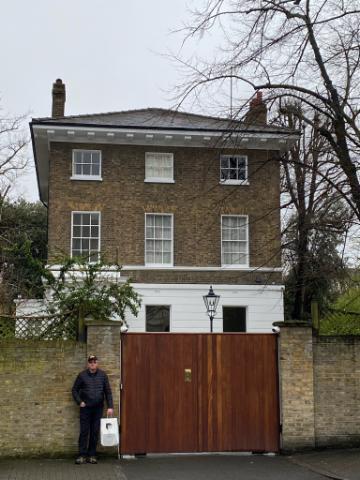 The question is, when did this morning occur when Paul dreamed the melody for "Yesterday"? There are various sources that attempt to pinpoint the time period. Barry Miles, co-author of Paul McCartney’s book “Many Years From Now,” explains this morning as having occurred in May of 1965. However, since Paul bought his first house at 7 Cavendish Ave. in St. Johns Wood, London on April 13th, 1965, he no longer lived with the Asher family in May. Producer George Martin insists "I first heard 'Yesterday' when it was known as 'Scrambled Eggs' - Paul's working title - at the George V Hotel in Paris in January 1964." However, it seems very unlikely that Paul would have held onto this new song idea through two Beatles' albums ("A Hard Day's Night" and "Beatles For Sale") before premeiring it for consideration to be recorded, especially since they were somewhat scrambling for new material for "Beatles For Sale." The question is, when did this morning occur when Paul dreamed the melody for "Yesterday"? There are various sources that attempt to pinpoint the time period. Barry Miles, co-author of Paul McCartney’s book “Many Years From Now,” explains this morning as having occurred in May of 1965. However, since Paul bought his first house at 7 Cavendish Ave. in St. Johns Wood, London on April 13th, 1965, he no longer lived with the Asher family in May. Producer George Martin insists "I first heard 'Yesterday' when it was known as 'Scrambled Eggs' - Paul's working title - at the George V Hotel in Paris in January 1964." However, it seems very unlikely that Paul would have held onto this new song idea through two Beatles' albums ("A Hard Day's Night" and "Beatles For Sale") before premeiring it for consideration to be recorded, especially since they were somewhat scrambling for new material for "Beatles For Sale."
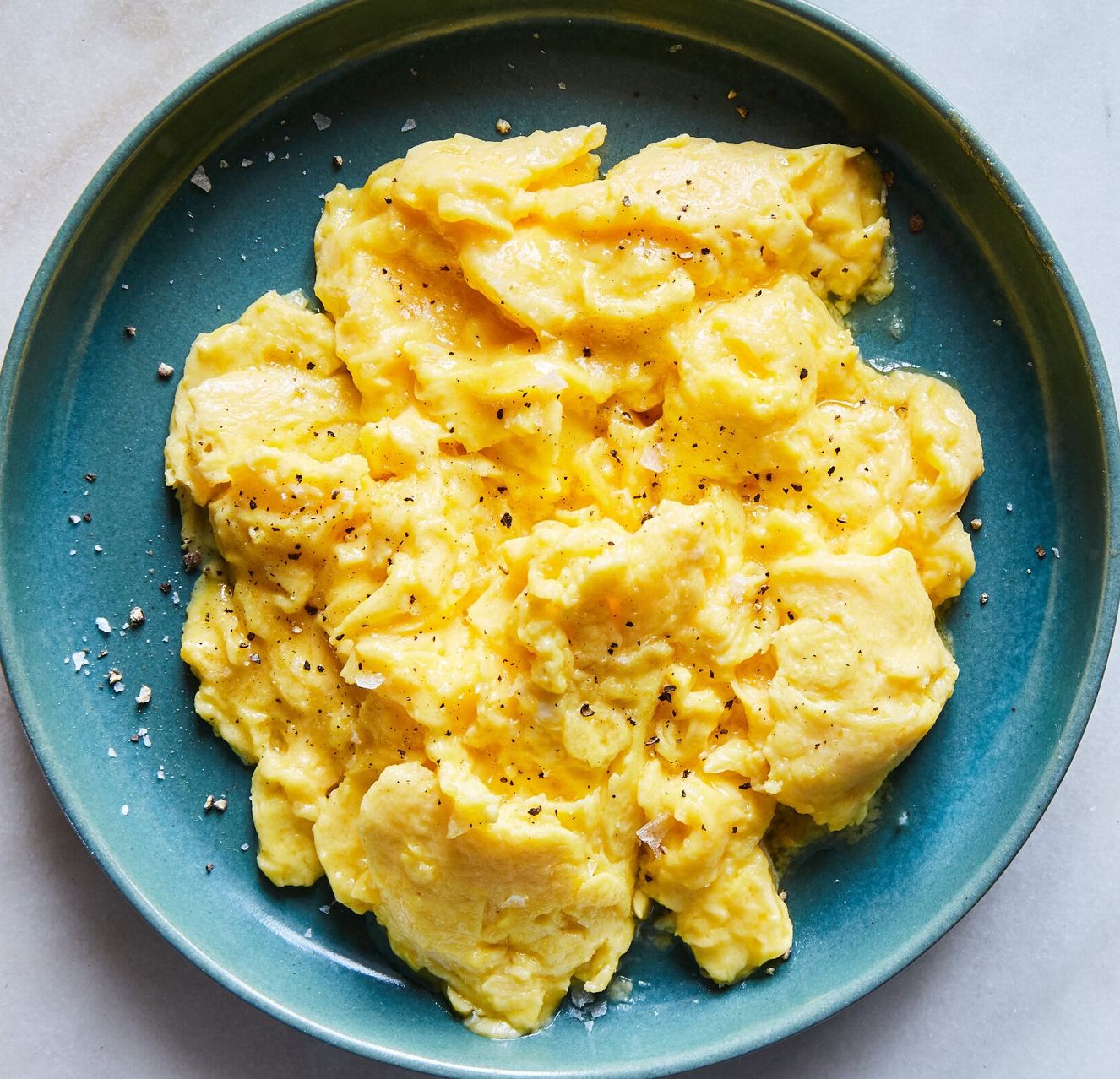 With this in mind, John Lennon stated back in 1965: “The song was around for months and months before we finally completed it. Paul wrote nearly all of it, but we just couldn’t find the right title. Every time we got together to write songs or for a recording session, this would come up. We called it ‘Scrambled Eggs’ and it became a joke between us. We almost had it finished when we made up our minds that only a one word title would suit it and, believe me, we just couldn’t find the right one. Then, one morning, Paul woke up, and the song and the title were both there. Completed! I know it sounds like a fairy tale, but it is the plain truth. I was sorry, in a way, because we had so many laughs about it.” As for the song idea being "around for months and months," as John stated above, a 1968 quote from Paul clarifies this somewhat. “It was called ‘Scrambled Egg’ for a couple of months, until I thought of ‘Yesterday.’ And that’s it. True story.” With this in mind, John Lennon stated back in 1965: “The song was around for months and months before we finally completed it. Paul wrote nearly all of it, but we just couldn’t find the right title. Every time we got together to write songs or for a recording session, this would come up. We called it ‘Scrambled Eggs’ and it became a joke between us. We almost had it finished when we made up our minds that only a one word title would suit it and, believe me, we just couldn’t find the right one. Then, one morning, Paul woke up, and the song and the title were both there. Completed! I know it sounds like a fairy tale, but it is the plain truth. I was sorry, in a way, because we had so many laughs about it.” As for the song idea being "around for months and months," as John stated above, a 1968 quote from Paul clarifies this somewhat. “It was called ‘Scrambled Egg’ for a couple of months, until I thought of ‘Yesterday.’ And that’s it. True story.”
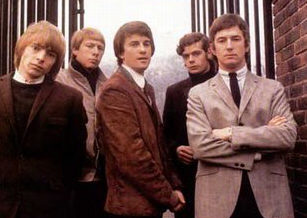 The clearest recollection to nail down the time period of when Paul first wrote the melody of "Yesterday" comes from Chris Dreja, the rhythm guitarist for The Yardbirds. He vividly remembers an event that occurred during the seasonal extravaganza entitled “Another Beatles Christmas Show,” rehearsals of which began on December 21st, 1964. The Yardbirds were one of the opening acts of this production, which ran from December 24th, 1964 to January 16th, 1965. As quoted in Andy Babiuk’s book “Beatles Gear,” he recalls how Paul asked to come into the dressing room of The Yardbirds at some point to premier a new song he was writing. “He sat down with the guitar, and at that point hadn’t got the lyrics, just the melody. He said it was called ‘Scrambled Eggs.’ And of course it was ‘Yesterday.’ There we were witnessing the start of one of the most famous songs of all time, and Paul was just playing it for us on an acoustic.” The clearest recollection to nail down the time period of when Paul first wrote the melody of "Yesterday" comes from Chris Dreja, the rhythm guitarist for The Yardbirds. He vividly remembers an event that occurred during the seasonal extravaganza entitled “Another Beatles Christmas Show,” rehearsals of which began on December 21st, 1964. The Yardbirds were one of the opening acts of this production, which ran from December 24th, 1964 to January 16th, 1965. As quoted in Andy Babiuk’s book “Beatles Gear,” he recalls how Paul asked to come into the dressing room of The Yardbirds at some point to premier a new song he was writing. “He sat down with the guitar, and at that point hadn’t got the lyrics, just the melody. He said it was called ‘Scrambled Eggs.’ And of course it was ‘Yesterday.’ There we were witnessing the start of one of the most famous songs of all time, and Paul was just playing it for us on an acoustic.”
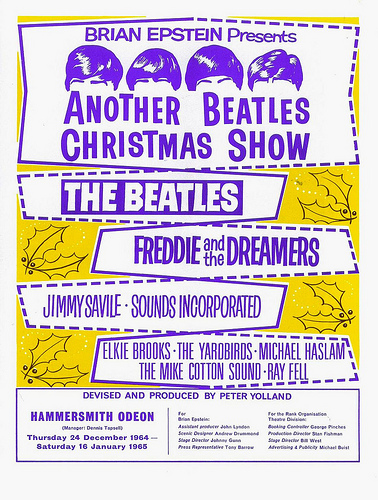 Since The Beatles' late 1964 British tour ended on November 10th, bringing Paul back to his living arrangement with the Ashers on November 11th, 1964, it can therefore be easily deduced that his dream of the melody for the song "Yesterday" occurred between November 11th, 1964 and January 16th, 1965 when "Another Beatles Christmas Show" was complete, since he premeired the song to The Yardbirds during this five-week production. Since The Beatles' late 1964 British tour ended on November 10th, bringing Paul back to his living arrangement with the Ashers on November 11th, 1964, it can therefore be easily deduced that his dream of the melody for the song "Yesterday" occurred between November 11th, 1964 and January 16th, 1965 when "Another Beatles Christmas Show" was complete, since he premeired the song to The Yardbirds during this five-week production.
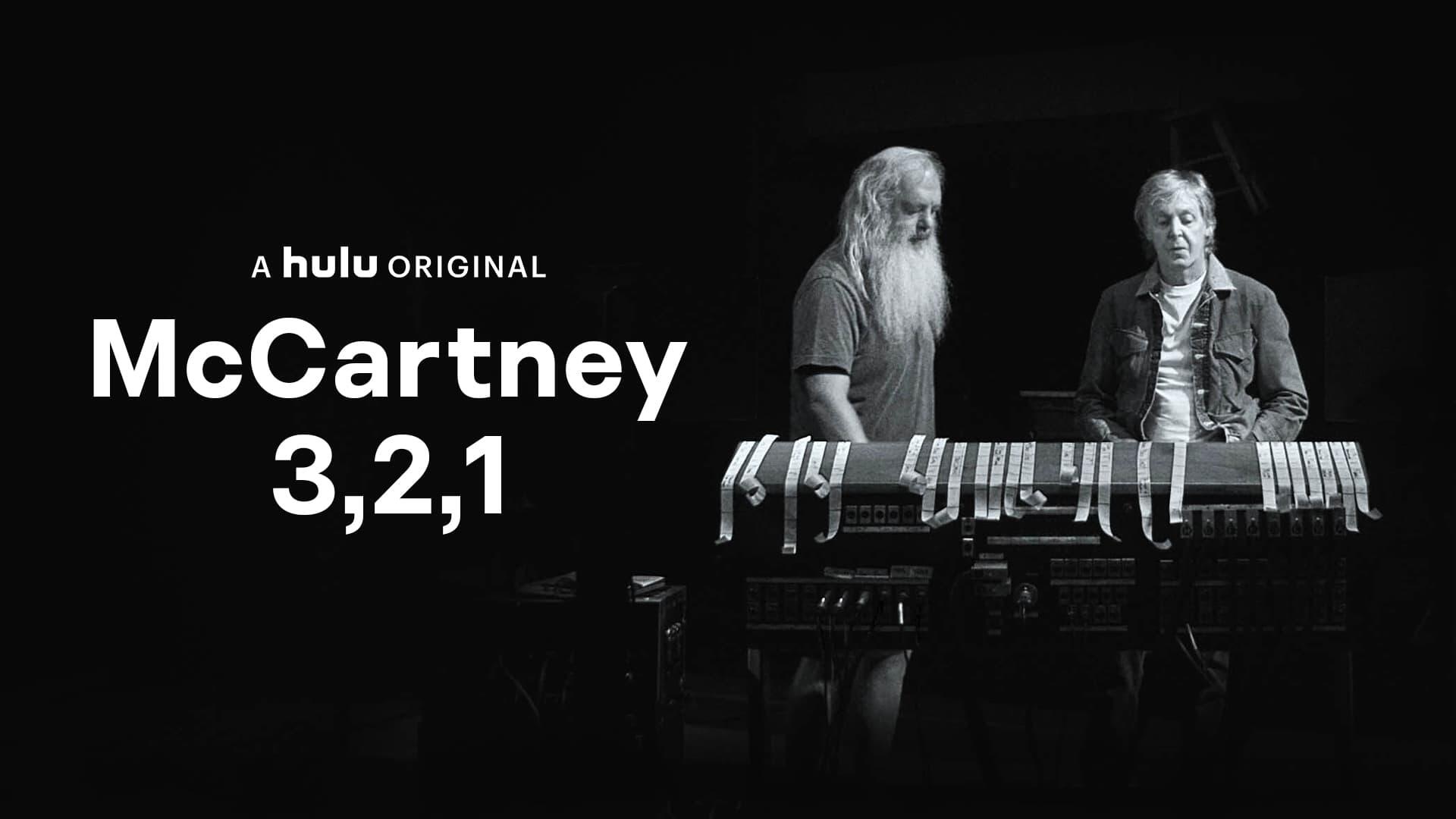 The next job was to verify that he did indeed write this melody. “It came too easy,” Paul relates, "I couldn’t believe it. I didn’t believe that I had written it. I thought that maybe I had heard it somewhere before, it was some other tune. I went around for weeks playing the chords of the song for people, asking them, ‘Is this like something? I think I’ve written it,’ and people would say, ‘No. It’s not like anything else, but it’s good.’" In his book "The Lyrics," Paul writes: "I think the first person I saw that morning outside the house was John. I said, 'What's this song?' He said, 'I don't know. I've never heard it.'" In his 2021 Hulu documentary series "McCartney 3,2,1," Paul relates: "I took it to George Martin, our producer, and George's got a wider knowledge of particularly older songs. So I said, 'What's this?' He said, 'I don't know.' I said...it's this melody, y'know, 'cause I can't have written it. There was no conscious effort involved. I just woke up and it was there.'" The next job was to verify that he did indeed write this melody. “It came too easy,” Paul relates, "I couldn’t believe it. I didn’t believe that I had written it. I thought that maybe I had heard it somewhere before, it was some other tune. I went around for weeks playing the chords of the song for people, asking them, ‘Is this like something? I think I’ve written it,’ and people would say, ‘No. It’s not like anything else, but it’s good.’" In his book "The Lyrics," Paul writes: "I think the first person I saw that morning outside the house was John. I said, 'What's this song?' He said, 'I don't know. I've never heard it.'" In his 2021 Hulu documentary series "McCartney 3,2,1," Paul relates: "I took it to George Martin, our producer, and George's got a wider knowledge of particularly older songs. So I said, 'What's this?' He said, 'I don't know.' I said...it's this melody, y'know, 'cause I can't have written it. There was no conscious effort involved. I just woke up and it was there.'"
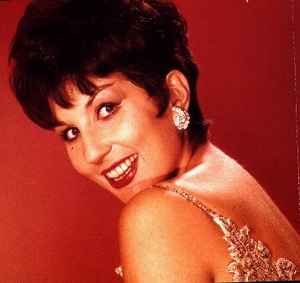 One person he auditioned the song for was British singer Alma Cogan, at her flat in Kensington, whom Paul described in his book "The Lyrics" as someone who "had pretty comprehensive knowledge of popular songs." “Alma was a bit of a song buff,” Paul relates, “and she said, ‘I don’t know what it is, but it’s beautiful.’” Director Richard Lester remembers Paul bothering everyone with the song on the set of their movie "Help!," which was described by Paul as "the incubation" period of when the song "Yesterday" was being written. “At some time during that period, we had a piano on one of the stages and he was playing this ‘Scrambled Eggs’ all the time,” Lester remembers. "It got to the point where I said to him, ‘If you play that bloody song any longer I’ll have the piano taken off stage. Either finish it or give it up!’"In his book "The Lyrics," Paul confirms, "When there was a chance, I would ask for a piano to be nearby so I could work on the song. I would ask for a piano to be nearby so I could work on the song. I think the middle eight was written on set. And it got to the point where the director, Richard Lester, started to get annoyed at always hearing the song. One day he shouted, 'If I hear that once more. I'll have the bloody piano taken away!' I don't think it helped matters that when he would ask what the song was called, I'd reply, 'Scrambled Eggs.'...When the 'Help!' album was released, Dick Lester was away on holiday, so I sent him a copy of it with a note saying, 'I hope you like "Scrambled Eggs!"'" One person he auditioned the song for was British singer Alma Cogan, at her flat in Kensington, whom Paul described in his book "The Lyrics" as someone who "had pretty comprehensive knowledge of popular songs." “Alma was a bit of a song buff,” Paul relates, “and she said, ‘I don’t know what it is, but it’s beautiful.’” Director Richard Lester remembers Paul bothering everyone with the song on the set of their movie "Help!," which was described by Paul as "the incubation" period of when the song "Yesterday" was being written. “At some time during that period, we had a piano on one of the stages and he was playing this ‘Scrambled Eggs’ all the time,” Lester remembers. "It got to the point where I said to him, ‘If you play that bloody song any longer I’ll have the piano taken off stage. Either finish it or give it up!’"In his book "The Lyrics," Paul confirms, "When there was a chance, I would ask for a piano to be nearby so I could work on the song. I would ask for a piano to be nearby so I could work on the song. I think the middle eight was written on set. And it got to the point where the director, Richard Lester, started to get annoyed at always hearing the song. One day he shouted, 'If I hear that once more. I'll have the bloody piano taken away!' I don't think it helped matters that when he would ask what the song was called, I'd reply, 'Scrambled Eggs.'...When the 'Help!' album was released, Dick Lester was away on holiday, so I sent him a copy of it with a note saying, 'I hope you like "Scrambled Eggs!"'"
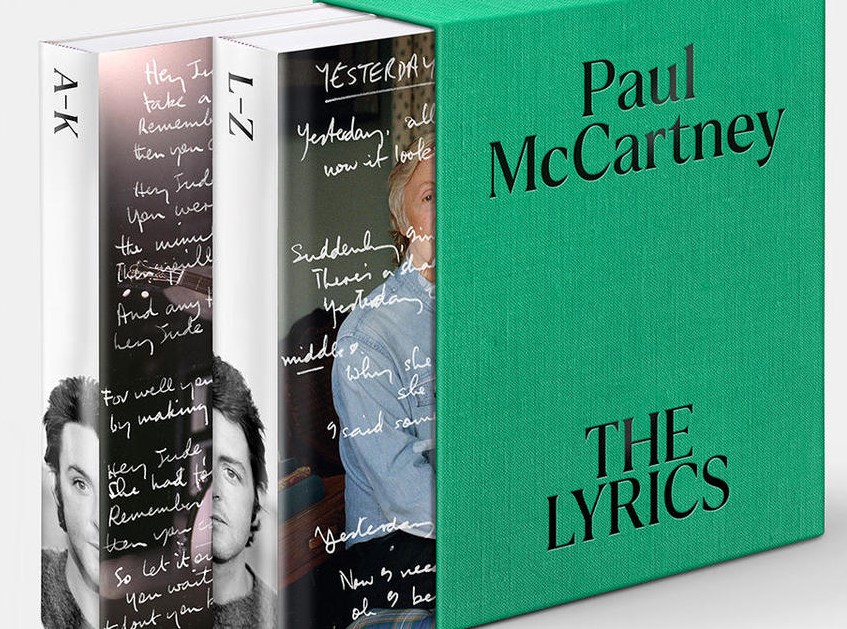 At some point, Paul was convinced that the melody did in fact come from him. "Eventually it became like handing something in to the police. I thought that if no-one claimed it after a few weeks then I would have it." In his book "The Lyrics," Paul elaborates: "After a couple of weeks, it became clear that no one knew the song and it didn't exist, except in my head. So I claimed it and spent time playing around with it, adding to it and perfecting it. It was like finding a 10 pound note on the street." At some point, Paul was convinced that the melody did in fact come from him. "Eventually it became like handing something in to the police. I thought that if no-one claimed it after a few weeks then I would have it." In his book "The Lyrics," Paul elaborates: "After a couple of weeks, it became clear that no one knew the song and it didn't exist, except in my head. So I claimed it and spent time playing around with it, adding to it and perfecting it. It was like finding a 10 pound note on the street."
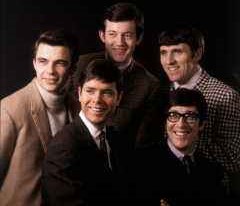 The only thing left was writing proper lyrics. After filming for “Help!” was complete, Paul and Jane arranged for a vacation in Albufeira, on the southern coast of Portugal, using a villa borrowed from his friend Bruce Welch, guitarist with Cliff Richard And The Shadows. After flying from London to Lisbon on May 27th, 1965, Paul and Jane needed to drive 180 miles from Lisbon to get to the villa. “It was a long hot, dusty drive,” Paul remembers. “Jane was sleeping but I couldn’t, and when I’m sitting that long in a car I either manage to get to sleep or my brain starts going. I remember mulling over the tune ‘Yesterday,’ and suddenly getting these little one-word openings to the verse.” The only thing left was writing proper lyrics. After filming for “Help!” was complete, Paul and Jane arranged for a vacation in Albufeira, on the southern coast of Portugal, using a villa borrowed from his friend Bruce Welch, guitarist with Cliff Richard And The Shadows. After flying from London to Lisbon on May 27th, 1965, Paul and Jane needed to drive 180 miles from Lisbon to get to the villa. “It was a long hot, dusty drive,” Paul remembers. “Jane was sleeping but I couldn’t, and when I’m sitting that long in a car I either manage to get to sleep or my brain starts going. I remember mulling over the tune ‘Yesterday,’ and suddenly getting these little one-word openings to the verse.”
Paul continues, "I started to develop the idea: Scram-ble-d eggs, da-da da. I knew the syllables had to match the melody, obviously: da-da da, yes-ter-day, sud-den-ly, fun-il-ly, mer-il-ly, and ‘Yes-ter-day,’ that’s good. ‘All my troubles seemed so far away.’ It’s easy to rhyme those ‘a’s: say, nay, today, away, play, stay, there’s a lot of rhymes and those fall in quite easily, so I gradually pieced it together from that journey. ‘Sud-den-ly,’ and ‘b’ again, another easy rhyme: e, me, tree, flea, we, and I had the basis of it." In his book "The Lyrics," Paul added: "I also remember thinking, 'People like sad songs.' I remember thinking that even I like sad songs. By the time I got to Albuferia, I'd completed the lyrics."
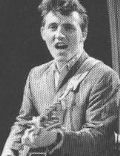 Then, when he arrived at the villa, he met up with Bruce Welsh. “I was packing to leave and Paul asked me if I had a guitar,” remembers Bruce Welch. “He’d apparently been working on the lyrics as he drove to Albufeira from the airport at Lisbon. He borrowed my guitar and started playing the song we all now know as ‘Yesterday.’” Then, when he arrived at the villa, he met up with Bruce Welsh. “I was packing to leave and Paul asked me if I had a guitar,” remembers Bruce Welch. “He’d apparently been working on the lyrics as he drove to Albufeira from the airport at Lisbon. He borrowed my guitar and started playing the song we all now know as ‘Yesterday.’”
“I think I finished the lyrics about two weeks later, which was quite a long time for me,” Paul adds. “Generally, John and I would sit down and finish within three hours, but this was more organic. I put in the words over the next couple of weeks.” This would take it right up to the recording date of the song – June 14th, 1965.
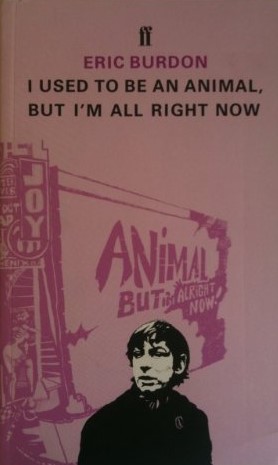 There apparently was still some hesitancy in Paul's mind about releasing the song. In Eric Burdon's autobiography "I Used To Be An Animal But I'm All Right Now," he writes about a phone call he received from singer Chris Farlowe, who had been on the London music scene since the late fifties and who's career needed a boost."'Listen, you'll never guess what happened. Paul McCartney - you know, Paul out of The Beatles?" Yes, I had heard of him. 'Well, he came 'round to our house in the middle of the night. I was out doing a show, but me mum was in and he left her a demo disc for me to listen to.' This was wonderful news. When was Chris going into the studio to cut this gift from the gods? 'Ah,' he growled. 'I don't like it. It's not for me. It's too soft. I need a good rocker, you know, a shuffle or something.' 'Yeah, but Chris,' I said, 'Anything to give you a start, man. I mean, even if it's a ballad you should go ahead and record it.' 'No, I don't like it,' he insisted. 'Too soft.' 'So what are you gonna do with the song?' 'Well, I sent it back, didn't I?' 'What was the title of the song?' '"Yesterday",' he retorted." There apparently was still some hesitancy in Paul's mind about releasing the song. In Eric Burdon's autobiography "I Used To Be An Animal But I'm All Right Now," he writes about a phone call he received from singer Chris Farlowe, who had been on the London music scene since the late fifties and who's career needed a boost."'Listen, you'll never guess what happened. Paul McCartney - you know, Paul out of The Beatles?" Yes, I had heard of him. 'Well, he came 'round to our house in the middle of the night. I was out doing a show, but me mum was in and he left her a demo disc for me to listen to.' This was wonderful news. When was Chris going into the studio to cut this gift from the gods? 'Ah,' he growled. 'I don't like it. It's not for me. It's too soft. I need a good rocker, you know, a shuffle or something.' 'Yeah, but Chris,' I said, 'Anything to give you a start, man. I mean, even if it's a ballad you should go ahead and record it.' 'No, I don't like it,' he insisted. 'Too soft.' 'So what are you gonna do with the song?' 'Well, I sent it back, didn't I?' 'What was the title of the song?' '"Yesterday",' he retorted."
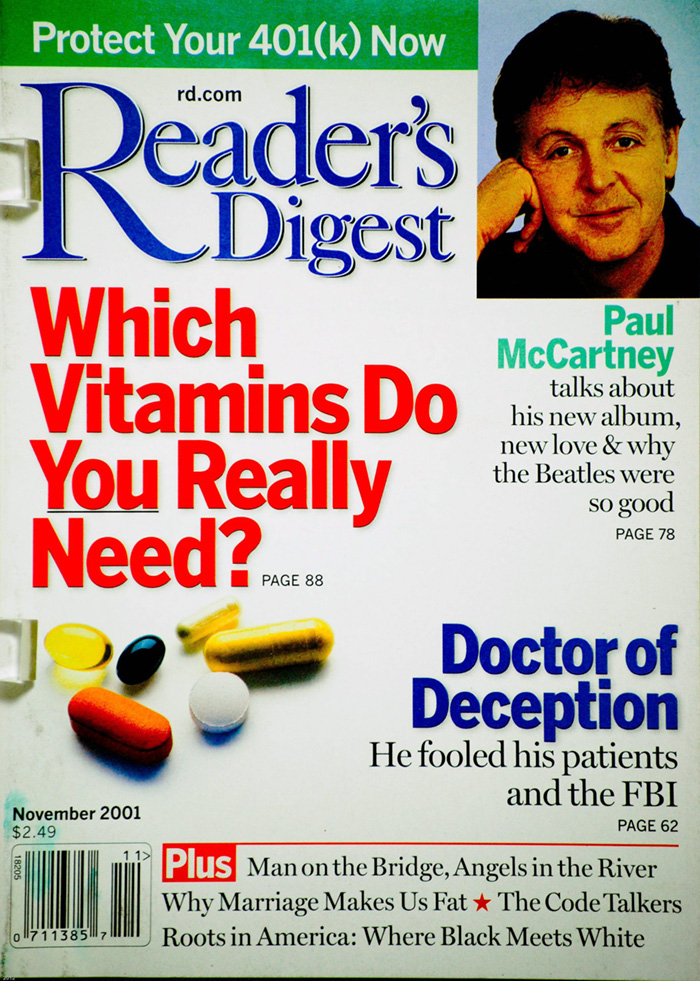 Although John had intimated in 1966 that he had played a part in writing the song, saying “We just helped finish off the ribbons ‘round it, you know – tying it up,” this appears to be an isolated case. For instance, in 1980 he remembered it differently. “That’s Paul’s song, and Paul’s baby. Well done. Beautiful – and I never wished I’d written it.” In a 2001 interview in Readers' Digest, Paul interestingly states: "John always said he had nothing to do with that song." Even Ringo concurs: "Paul, of course, had written his ‘Yesterday,’ the most recorded song in history – What a guy!" Although John had intimated in 1966 that he had played a part in writing the song, saying “We just helped finish off the ribbons ‘round it, you know – tying it up,” this appears to be an isolated case. For instance, in 1980 he remembered it differently. “That’s Paul’s song, and Paul’s baby. Well done. Beautiful – and I never wished I’d written it.” In a 2001 interview in Readers' Digest, Paul interestingly states: "John always said he had nothing to do with that song." Even Ringo concurs: "Paul, of course, had written his ‘Yesterday,’ the most recorded song in history – What a guy!"
"People would later say to me, 'Do you believe in magic?'", Paul states in his "McCartney 3,2,1" documentary. "I'd say, 'Well, I have to!' Y'know, I mean, how did that happen? I'm sleeping (snore, da, da, da, da, da, da...Oh I love this song), wake up! Now the difference is, I remembered it. I think a lot of people hear beautiful music in their dream but don't necessarily remember them.”
 British EP
|
Recording History
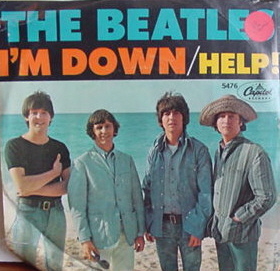 June 14th, 1965 turned out to be "Paul McCartney" day in the recording studio. The Beatles were in EMI Studio Two from 2:30 to 5:30 pm recording two Paul songs in their entirety, namely “I’ve Just Seen A Face” and the rock’n’roll screamer “I’m Down.” After an hour-and-a-half break, they returned at 7 pm for another three hour session, the only recording accomplished during this session being two takes of “Yesterday” by only Paul on acoustic guitar and vocals. June 14th, 1965 turned out to be "Paul McCartney" day in the recording studio. The Beatles were in EMI Studio Two from 2:30 to 5:30 pm recording two Paul songs in their entirety, namely “I’ve Just Seen A Face” and the rock’n’roll screamer “I’m Down.” After an hour-and-a-half break, they returned at 7 pm for another three hour session, the only recording accomplished during this session being two takes of “Yesterday” by only Paul on acoustic guitar and vocals.
“I brought the song into the studio for the first time and played it on the guitar,” Paul remembers, “but soon Ringo said, ‘I can’t really put any drums on – it wouldn’t make sense.’ And John and George said, ‘There’s no point in having another guitar.’ So George Martin suggested, ‘Why don’t you just try it by yourself and see how it works?’ I looked at all the others: ‘Oops. You mean a solo record?’ They said, ‘Yeah, it doesn’t matter, there’s nothing we can add to it – do it.’”
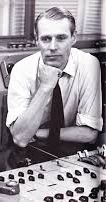 The decision may not have materialized fully until after the first acoustic take was recorded. Just before "take one," which was included on the “Anthology 2” album, we can clearly hear George Harrison repeatedly ask Paul “what key is it in?” Paul then quickly instructs George in the basic chord sequence before jumping right into "take one" as George Martin suggested. It’s possible that the verdict was still out as to whether the other Beatles, or maybe just George, would still be included in the recording. “We didn’t have much time to work out an arrangement,” George Harrison remembers, this being nearly the last session booked to finish the “Help!” album. In any event, the matter was dropped shortly thereafter. The decision may not have materialized fully until after the first acoustic take was recorded. Just before "take one," which was included on the “Anthology 2” album, we can clearly hear George Harrison repeatedly ask Paul “what key is it in?” Paul then quickly instructs George in the basic chord sequence before jumping right into "take one" as George Martin suggested. It’s possible that the verdict was still out as to whether the other Beatles, or maybe just George, would still be included in the recording. “We didn’t have much time to work out an arrangement,” George Harrison remembers, this being nearly the last session booked to finish the “Help!” album. In any event, the matter was dropped shortly thereafter.
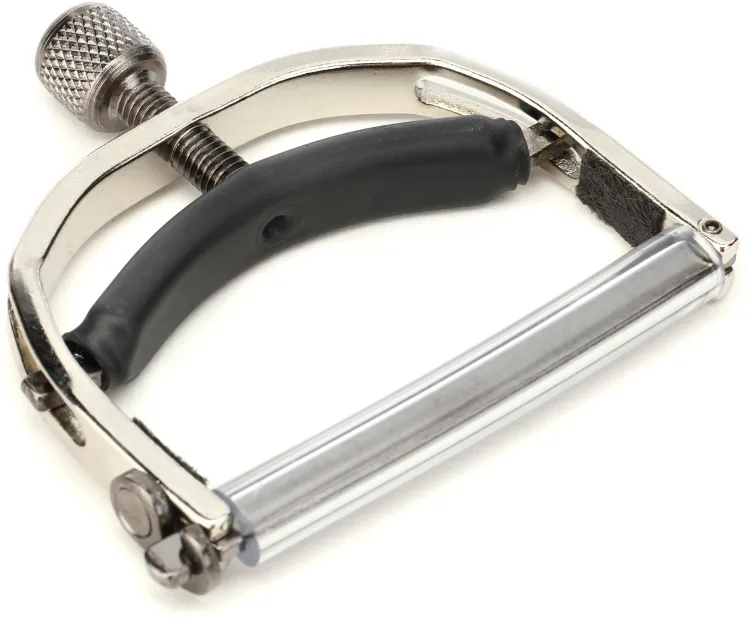 In his book "The Lyrics," Paul relates: "Another thing that happened around this time is that we realized the song would sound better in the key of F. But I'd written it in G. You can get used to playing a song with certain chords, and if you try to play them differently on a guitar, you have to relearn the song, which can altewr the way the song sounds. If you want to go higher, you can use a little device called a capo. But if you want to go lower, it's not always so eary; you can run out of room. So, what we did here was to detune the guitar by a whole tone. This means that when you're playing the note G, what actually sounds is the note F. These kinds of different tunings are quite common now, but tuning all six strings down a whole tone was a new trick back then, and it meant I could play the guitar the way I'd written the song, but in the key that we thought sounded best." This is why, when George asked "what key is it in?" during the recording the recording of 'take one' on June 14th, 1965, Paul answered, "It'll be in F for you." In his book "The Lyrics," Paul relates: "Another thing that happened around this time is that we realized the song would sound better in the key of F. But I'd written it in G. You can get used to playing a song with certain chords, and if you try to play them differently on a guitar, you have to relearn the song, which can altewr the way the song sounds. If you want to go higher, you can use a little device called a capo. But if you want to go lower, it's not always so eary; you can run out of room. So, what we did here was to detune the guitar by a whole tone. This means that when you're playing the note G, what actually sounds is the note F. These kinds of different tunings are quite common now, but tuning all six strings down a whole tone was a new trick back then, and it meant I could play the guitar the way I'd written the song, but in the key that we thought sounded best." This is why, when George asked "what key is it in?" during the recording the recording of 'take one' on June 14th, 1965, Paul answered, "It'll be in F for you."
 This first take is interesting because of the somewhat lackadaisical approach taken by Paul to its recording. His awkward rhythmic chording in the introduction was dropped after the first few measures, replaced by what we’re used to hearing in the final product. He transposes two lines in the second verse, namely “there’s a shadow hanging over me” and “I’m not half the man I used to be.” Realizing he had done this, a slight chuckle can be detected. Also, he ends the first bridge with descending notes (“long for yesterday-ay-ay-ay”) and, when he gets to the second bridge, reluctantly repeats the process with a hesitancy that suggests he knows he shouldn’t do it both times. This take is a little rough but still beautifully performed. This first take is interesting because of the somewhat lackadaisical approach taken by Paul to its recording. His awkward rhythmic chording in the introduction was dropped after the first few measures, replaced by what we’re used to hearing in the final product. He transposes two lines in the second verse, namely “there’s a shadow hanging over me” and “I’m not half the man I used to be.” Realizing he had done this, a slight chuckle can be detected. Also, he ends the first bridge with descending notes (“long for yesterday-ay-ay-ay”) and, when he gets to the second bridge, reluctantly repeats the process with a hesitancy that suggests he knows he shouldn’t do it both times. This take is a little rough but still beautifully performed.
Now that he had gotten his bearings, the second attempt is done far more professionally. The straightforward rhythmic chording appears right from the beginning, he sings the lines correctly in the second verse, and he holds out the last syllable of the word “yesterday” at the end of the first bridge, saving the descending notes for the second bridge. Two takes were all that was needed.
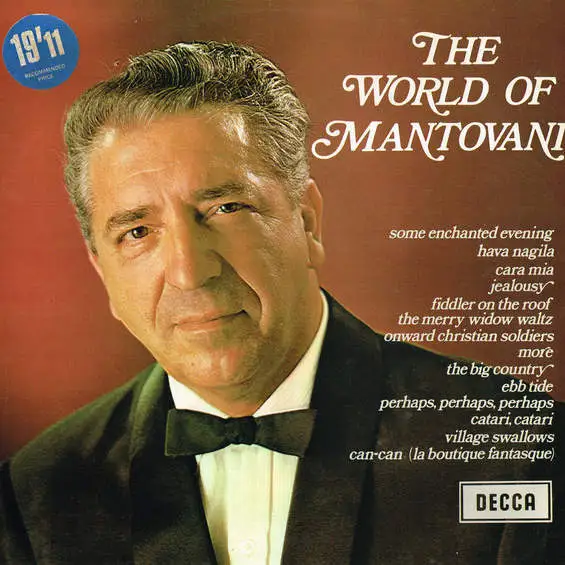 The next order of business for the rest of the evening session that day was to decide what else could be done to the song. George Martin recalls how Paul “sat on a high stool with his acoustic guitar and sang ‘Yesterday.’ That was the master to begin with. Then I said, ‘Well, what can we do with it?’” Several different approaches were suggested and possibly tried out, reportedly even adding John on organ. George Martin then told Paul, “’The only thing I can think of is adding strings, but I know what you think about that.’ And Paul said, ‘I don’t want Mantovani.’ I said, ‘What about a very small number of string players, a quartet?’ He thought that was interesting.” The next order of business for the rest of the evening session that day was to decide what else could be done to the song. George Martin recalls how Paul “sat on a high stool with his acoustic guitar and sang ‘Yesterday.’ That was the master to begin with. Then I said, ‘Well, what can we do with it?’” Several different approaches were suggested and possibly tried out, reportedly even adding John on organ. George Martin then told Paul, “’The only thing I can think of is adding strings, but I know what you think about that.’ And Paul said, ‘I don’t want Mantovani.’ I said, ‘What about a very small number of string players, a quartet?’ He thought that was interesting.”
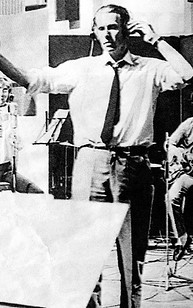 Paul begs to differ. “George Martin had the idea to put the string quartet on it and I said, ‘No, I don’t think so.’ He said, ‘I’ve really got a feeling for it. I can hear it working.’ I said, ‘’Are you kidding? This is a rock group!’ I hated the idea…But he cleverly said, ‘Let’s try it,’ and I thought, that’s fair enough. ‘If we hate it,’ he said, ‘we can take it off. We’ll just go back; it’s very nice just with the solo guitar and your voice…Look, why don’t you come ‘round to my house tomorrow? I’ve got a piano, and I’ve got the manuscript paper. We’ll sit down for an hour or so, and you can let me know what you’re looking for.” With that decided, the recording session was over for the night. Paul begs to differ. “George Martin had the idea to put the string quartet on it and I said, ‘No, I don’t think so.’ He said, ‘I’ve really got a feeling for it. I can hear it working.’ I said, ‘’Are you kidding? This is a rock group!’ I hated the idea…But he cleverly said, ‘Let’s try it,’ and I thought, that’s fair enough. ‘If we hate it,’ he said, ‘we can take it off. We’ll just go back; it’s very nice just with the solo guitar and your voice…Look, why don’t you come ‘round to my house tomorrow? I’ve got a piano, and I’ve got the manuscript paper. We’ll sit down for an hour or so, and you can let me know what you’re looking for.” With that decided, the recording session was over for the night.
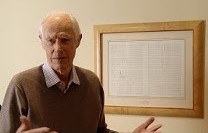 The next day, June 15th, 1965, Paul met up with George Martin at his house as suggested. As Paul remembers: “We’d sit down and it would be quite straightforward because I’d have a good idea of how I wanted to voice it. Or George would show me possibilities: very wide apart or very gungy and very close, and we’d choose. He would say, ‘This is the way to do the harmony, technically.’ And I’d often try to go against that. I’d think, ‘Well, why should there be a proper way to do it?’" Shortly before his passing, George Martin commented on the score that he wrote for the song: "If you look at that 'Yesterday' score, it's pretty naive, but it does work...I hadn't been, kind of, over-educated in music, and so that I had a naivity as well...It's very, very simple writing, but it couldn't be anything else. If it were, it would destroy what the point of the song is, which is utter simplicity. I did this in an afternoon. I had it in my mind what I had to do, and it's just straightforward." The next day, June 15th, 1965, Paul met up with George Martin at his house as suggested. As Paul remembers: “We’d sit down and it would be quite straightforward because I’d have a good idea of how I wanted to voice it. Or George would show me possibilities: very wide apart or very gungy and very close, and we’d choose. He would say, ‘This is the way to do the harmony, technically.’ And I’d often try to go against that. I’d think, ‘Well, why should there be a proper way to do it?’" Shortly before his passing, George Martin commented on the score that he wrote for the song: "If you look at that 'Yesterday' score, it's pretty naive, but it does work...I hadn't been, kind of, over-educated in music, and so that I had a naivity as well...It's very, very simple writing, but it couldn't be anything else. If it were, it would destroy what the point of the song is, which is utter simplicity. I did this in an afternoon. I had it in my mind what I had to do, and it's just straightforward."
"George Martin was a huge help inasmuch as he can write it," Paul explains in his "McCartney 3,2,1" documentary. "Normally you've got a song and you'll have to get an outside arranger in. And then he sort of goes off into a cupboard somewhere and you don't quite know what it's gonna be. But with George, you knew that we read each other well enough." In his book "The Lyrics," Paul describes George Martin as a person "who had now been our producer for a few years and, even though he wasn't yet forty at this point, was someone we trusted and looked up to."
 In his book "Many Years From Now," Paul continues: "There was just one point in it where I said, ‘Could the cello now play a slightly bluesy thing, out of the genre, out of keeping with the rest of the voicing?’ George said, ‘(Johann Sebastian) Bach certainly wouldn’t have done that, Paul, ha ha ha.’ I said, ‘Great!’ That was what we often used to do, try and claim our one little moment. I mean, obviously it was my song, my chords, my everything really, but because the voicing now had become Bach’s, I needed something of mine again to redress the balance. So I put a 7th in, which was unheard of. It’s what we used to call a blue note, and that became a little bit well known. It’s one of the unusual things in that arrangement.” In his book "Many Years From Now," Paul continues: "There was just one point in it where I said, ‘Could the cello now play a slightly bluesy thing, out of the genre, out of keeping with the rest of the voicing?’ George said, ‘(Johann Sebastian) Bach certainly wouldn’t have done that, Paul, ha ha ha.’ I said, ‘Great!’ That was what we often used to do, try and claim our one little moment. I mean, obviously it was my song, my chords, my everything really, but because the voicing now had become Bach’s, I needed something of mine again to redress the balance. So I put a 7th in, which was unheard of. It’s what we used to call a blue note, and that became a little bit well known. It’s one of the unusual things in that arrangement.”
Concerning this “blue note,” which is heard after the words “she wouldn’t say” in the second bridge, George Martin comments: "John listened to (the finished song), and there’s a particular bit where the cello moves into a bluesy note which he thought was terrific, so it was applauded."
 In his book "The Lyrics," Paul explains how they almost went another route with the recording of the song. "It was almost recorded as an electronic avant garde song. When we were trying to work out how to record it, I was very intrigued by the work of Delia Derbyshire. She was a pioneer of electronic music who worked for the BBC Radiophonic Workshop and is probably best known for her work on the 'Doctor Who' theme music. George Martin had done some work with the Radiophonic Workshop a few years before and actually put out their first commercial release with a song called 'Time Beat' under the pseudonym Ray Cathode. I went to see Delia and she took me to a hut she had in the garden, a sort of laboratory. And we talked about how she worked, but in the end we went with George (Martin)'s arrangement (as shown below)." In his book "The Lyrics," Paul explains how they almost went another route with the recording of the song. "It was almost recorded as an electronic avant garde song. When we were trying to work out how to record it, I was very intrigued by the work of Delia Derbyshire. She was a pioneer of electronic music who worked for the BBC Radiophonic Workshop and is probably best known for her work on the 'Doctor Who' theme music. George Martin had done some work with the Radiophonic Workshop a few years before and actually put out their first commercial release with a song called 'Time Beat' under the pseudonym Ray Cathode. I went to see Delia and she took me to a hut she had in the garden, a sort of laboratory. And we talked about how she worked, but in the end we went with George (Martin)'s arrangement (as shown below)."
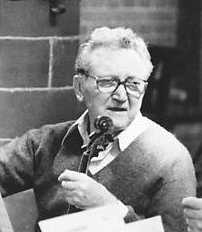 On June 17th, 1965, a 2 to 4 pm recording session was held in EMI Studio Two to record the string quartet overdub to Paul’s acoustic performance of “Yesterday.” "I loved the session," Paul related in his "McCartney 3,2,1" documentary. "It was just me with George up in the control room. And we'd go down to meet the string players, the quartet, and I was really excited because we've never done anything like it and we suddenly feel whole." Paul also had some say in how these musicians were to play. George Martin remembers: “He insisted, ‘No vibrato, I don’t want any vibrato!’ If you’re a good violin player it’s very difficult to play without vibrato. Paul told the musicians he wanted it pure. But although they did cut down the vibrato they couldn’t do it pure because they would have sounded like schoolboys. I think Paul realized in later years that what he got was right.” On June 17th, 1965, a 2 to 4 pm recording session was held in EMI Studio Two to record the string quartet overdub to Paul’s acoustic performance of “Yesterday.” "I loved the session," Paul related in his "McCartney 3,2,1" documentary. "It was just me with George up in the control room. And we'd go down to meet the string players, the quartet, and I was really excited because we've never done anything like it and we suddenly feel whole." Paul also had some say in how these musicians were to play. George Martin remembers: “He insisted, ‘No vibrato, I don’t want any vibrato!’ If you’re a good violin player it’s very difficult to play without vibrato. Paul told the musicians he wanted it pure. But although they did cut down the vibrato they couldn’t do it pure because they would have sounded like schoolboys. I think Paul realized in later years that what he got was right.”
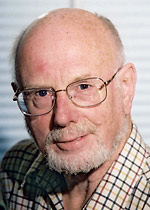 These musicians were Tony Gilbert (first violin), Sidney Sax (second violin), Francisco Gabarro (cello) and Kenneth Essex (viola). “George was very good that way,” Paul explains. “He got a very good, competent quartet, and they played and I really liked the result, I thought it was smashing.” In fact, Paul ran into Francisco Gabarro a week later in the EMI canteen and thought to say something to him. Gabarro recalls, “He came up to me and said, ‘We have a winner with that ‘Yesterday.’ I said, well, good luck! Congratulations!” These musicians were Tony Gilbert (first violin), Sidney Sax (second violin), Francisco Gabarro (cello) and Kenneth Essex (viola). “George was very good that way,” Paul explains. “He got a very good, competent quartet, and they played and I really liked the result, I thought it was smashing.” In fact, Paul ran into Francisco Gabarro a week later in the EMI canteen and thought to say something to him. Gabarro recalls, “He came up to me and said, ‘We have a winner with that ‘Yesterday.’ I said, well, good luck! Congratulations!”
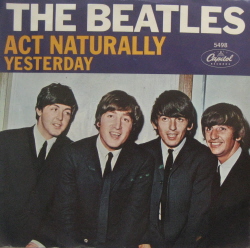 One last overdub needed to be added, and this was to double-track Paul’s vocals at the end of the first bridge in order to extent his final high note on “yester-dayyyyyyy.” The double-tracking begins on the words “something wrong” and then completes the bridge. (While George Martin insists that no double-tracking was used on the song and that the effect heard was due to Paul’s vocals being piped in for the quartet to hear during the recording, it’s obvious from listening that there are two distinct vocal tracks on top of each other at this point. Also, since both vocal tracks are heard together in the center of both stereo mixes and not just on the left channel where the quartet is panned, this indicates that the two voices weren’t the result of bleed-through from the studio monitor as is claimed.) With the song then complete, and after the string quartet had gone, The Beatles commenced recording Ringo’s contribution to the album, namely “Act Naturally.” One last overdub needed to be added, and this was to double-track Paul’s vocals at the end of the first bridge in order to extent his final high note on “yester-dayyyyyyy.” The double-tracking begins on the words “something wrong” and then completes the bridge. (While George Martin insists that no double-tracking was used on the song and that the effect heard was due to Paul’s vocals being piped in for the quartet to hear during the recording, it’s obvious from listening that there are two distinct vocal tracks on top of each other at this point. Also, since both vocal tracks are heard together in the center of both stereo mixes and not just on the left channel where the quartet is panned, this indicates that the two voices weren’t the result of bleed-through from the studio monitor as is claimed.) With the song then complete, and after the string quartet had gone, The Beatles commenced recording Ringo’s contribution to the album, namely “Act Naturally.”
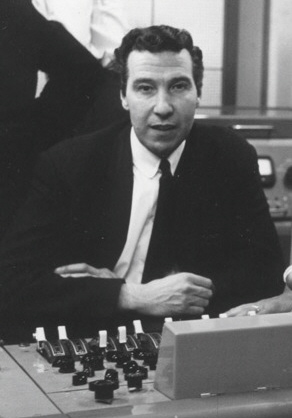 Two mono mixes were performed at the end of this session (June 17th, 1965) in the control room of EMI Studio Two by George Martin and engineers Norman Smith and Phil McDonald. The second mix was the one released, which is unique in a couple of ways. First, the overdubbed vocals in the first bridge have a noticeable amount of extra reverb applied to them, which stands out in comparison to the rest of the vocals, which are almost devoid of any reverb whatsoever. Also, the quartet does not fade out at the end, so we can hear the full release of the violins as the final moment of the song. Two mono mixes were performed at the end of this session (June 17th, 1965) in the control room of EMI Studio Two by George Martin and engineers Norman Smith and Phil McDonald. The second mix was the one released, which is unique in a couple of ways. First, the overdubbed vocals in the first bridge have a noticeable amount of extra reverb applied to them, which stands out in comparison to the rest of the vocals, which are almost devoid of any reverb whatsoever. Also, the quartet does not fade out at the end, so we can hear the full release of the violins as the final moment of the song.
 The first stereo mix of “Yesterday” was made on June 18th, 1965 in the control room of EMI Studio Two by the same EMI staff members of George Martin, Norman Smith and Phil McDonald. Paul’s vocals are centered in the mix, the guitar is mostly panned to the right, and the strings are panned mostly to the left channel. Unique features of this mix include hearing a faint squeak from a violinist in the first verse just after the words “I believe.” Also, the overdubbed vocal in the first bridge has minimal reverb just as the main vocal has. A fret noise from the acoustic guitar is heard in the right channel just before the words “now I need a place,” this being heard quietly in nearly all of the released mixes of the song. Finally, the strings are now faded out at the end just before their actual conclusion. The first stereo mix of “Yesterday” was made on June 18th, 1965 in the control room of EMI Studio Two by the same EMI staff members of George Martin, Norman Smith and Phil McDonald. Paul’s vocals are centered in the mix, the guitar is mostly panned to the right, and the strings are panned mostly to the left channel. Unique features of this mix include hearing a faint squeak from a violinist in the first verse just after the words “I believe.” Also, the overdubbed vocal in the first bridge has minimal reverb just as the main vocal has. A fret noise from the acoustic guitar is heard in the right channel just before the words “now I need a place,” this being heard quietly in nearly all of the released mixes of the song. Finally, the strings are now faded out at the end just before their actual conclusion.
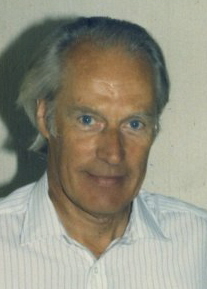 A second stereo mix was made by George Martin in 1986 in preparation for the first compact disc release of the British “Help!” album. The difference from the original stereo mix is negligible, still containing the faint violin squeak in the introduction, which could have easily been omitted since the quartet had yet to start playing. A second stereo mix was made by George Martin in 1986 in preparation for the first compact disc release of the British “Help!” album. The difference from the original stereo mix is negligible, still containing the faint violin squeak in the introduction, which could have easily been omitted since the quartet had yet to start playing.
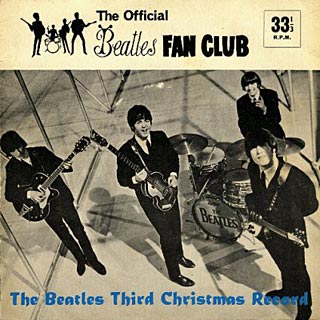 The Beatles did record the song one further time at EMI Studios, but not as a serious attempt. On November 8th, 1965, just after finishing up the recording of “Think For Yourself” for their “Rubber Soul” album, they recorded “The Beatles’ Third Christmas Record” in EMI Studio Two, with George Martin, Norman Smith and 2nd engineer Ken Scott at the controls. From approximately 2 to 3 am (which would actually make it November 9th), the tired group gathered around some microphones and, with Paul on acoustic guitar, they performed a silly impromptu version of “Yesterday,” which more appropriately became “Christmas Day.” This very humorous recording, with all four Beatles singing (kind of), was released exclusively to members of their fan club in December of 1965. The Beatles did record the song one further time at EMI Studios, but not as a serious attempt. On November 8th, 1965, just after finishing up the recording of “Think For Yourself” for their “Rubber Soul” album, they recorded “The Beatles’ Third Christmas Record” in EMI Studio Two, with George Martin, Norman Smith and 2nd engineer Ken Scott at the controls. From approximately 2 to 3 am (which would actually make it November 9th), the tired group gathered around some microphones and, with Paul on acoustic guitar, they performed a silly impromptu version of “Yesterday,” which more appropriately became “Christmas Day.” This very humorous recording, with all four Beatles singing (kind of), was released exclusively to members of their fan club in December of 1965.
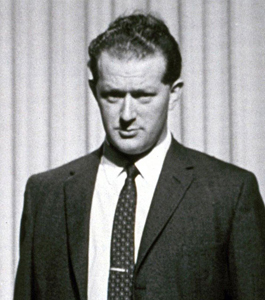 Interestingly, their final live performance on August 29th, 1966 at Candlestick Park included "Yesterday," introduced by George as being included on the recently released US album "Yesterday...And Today." As detailed in Keith Badman's book "The Beatles Off The Record," the group's press officer Tony Barrow recalls: "There was a sort of end of term spirit thing going on, and there was also this kind of feeling amongst all of us around The Beatles, that this might just be the last concert that they will ever do. I remember Paul, casually, at the very last minute, saying, 'Have you got your cassette recorder with you?' and I said, 'Yes, of course.' Paul then said, 'Tape it, will you? Tape the show,' which I did, literally just holding the microphone up in the middle of the field. As a personal souvenir of the occasion, it was a very nice thing to have." Even though Tony Barrow insists that he only made one copy of the tape, which he had locked in a drawer in his London office, and gave the original to Paul, this recording has been available on bootleg releases throughout the years. Interestingly, their final live performance on August 29th, 1966 at Candlestick Park included "Yesterday," introduced by George as being included on the recently released US album "Yesterday...And Today." As detailed in Keith Badman's book "The Beatles Off The Record," the group's press officer Tony Barrow recalls: "There was a sort of end of term spirit thing going on, and there was also this kind of feeling amongst all of us around The Beatles, that this might just be the last concert that they will ever do. I remember Paul, casually, at the very last minute, saying, 'Have you got your cassette recorder with you?' and I said, 'Yes, of course.' Paul then said, 'Tape it, will you? Tape the show,' which I did, literally just holding the microphone up in the middle of the field. As a personal souvenir of the occasion, it was a very nice thing to have." Even though Tony Barrow insists that he only made one copy of the tape, which he had locked in a drawer in his London office, and gave the original to Paul, this recording has been available on bootleg releases throughout the years.
An interesting recording of “Yesterday” sung by John Lennon has surfaced on bootlegs, reportedly recorded during Lennon's 31st birthday party on October 9th, 1971. This rough recording, featuring Lennon on acoustic guitar along with various voices and percussive sounds, depicts a combination of John poking fun at the song as well as his admiration for it.
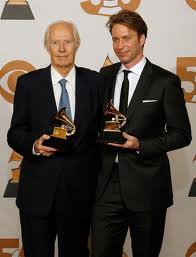 The actual master tape of "take two" was pulled out of the archives in the mid 2000’s by George Martin and son Giles Martin to create a whole new stereo mix of the song for the Cirque du Soleil show entitled “Love.” Not only did they think to tack on some instrumental bars of “Blackbird” at the beginning, but the end result was a flawless production that corrected all of the anomalies of the previous stereo mixes. No more violin squeak in the first verse and no more fret noise in the final verse. The positioning of the elements were nearly identical though, except that both the acoustic guitar and the quartet were panned slightly more toward center. The actual master tape of "take two" was pulled out of the archives in the mid 2000’s by George Martin and son Giles Martin to create a whole new stereo mix of the song for the Cirque du Soleil show entitled “Love.” Not only did they think to tack on some instrumental bars of “Blackbird” at the beginning, but the end result was a flawless production that corrected all of the anomalies of the previous stereo mixes. No more violin squeak in the first verse and no more fret noise in the final verse. The positioning of the elements were nearly identical though, except that both the acoustic guitar and the quartet were panned slightly more toward center.
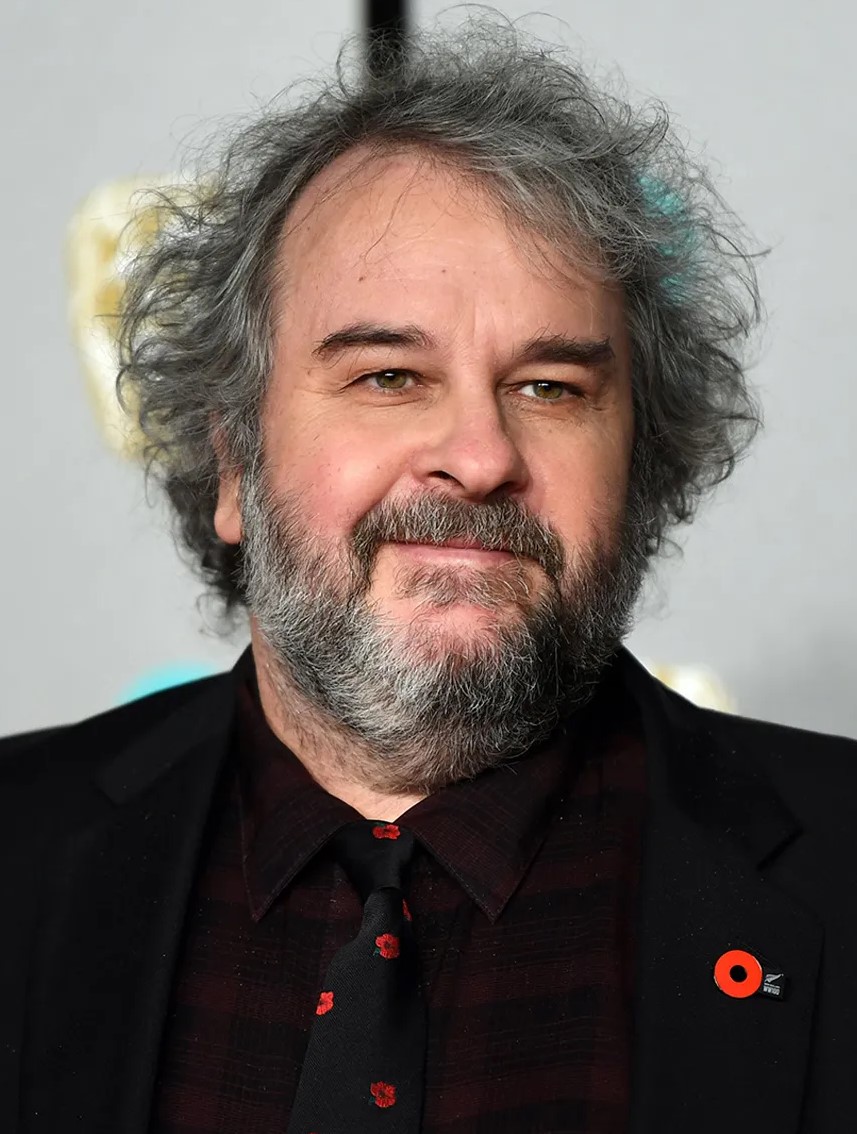 Sometime in 2015, Giles Martin revisited the original master tape once again with Sam Okell in Abbey Road Studios to create another new stereo mix of "take two" for inclusion on a re-released version of the compilation album "Beatles 1" that came out that year. Giles Martin did the same sometime in 2023 to create yet a newer stereo mix of "Yesterday" using Peter Jackson's AI "new machine-learning technology," as described by liner notes author John Harris, for the 50th Anniversary release of "The Beatles / 1962 - 1966" (aka "The Red Album"). With the cellos panned more to the right channel and the violins to the left, "Yesterday" never sounded better, not to mention containing the unfaded quartet ending as on the mono mix. Sometime in 2015, Giles Martin revisited the original master tape once again with Sam Okell in Abbey Road Studios to create another new stereo mix of "take two" for inclusion on a re-released version of the compilation album "Beatles 1" that came out that year. Giles Martin did the same sometime in 2023 to create yet a newer stereo mix of "Yesterday" using Peter Jackson's AI "new machine-learning technology," as described by liner notes author John Harris, for the 50th Anniversary release of "The Beatles / 1962 - 1966" (aka "The Red Album"). With the cellos panned more to the right channel and the violins to the left, "Yesterday" never sounded better, not to mention containing the unfaded quartet ending as on the mono mix.
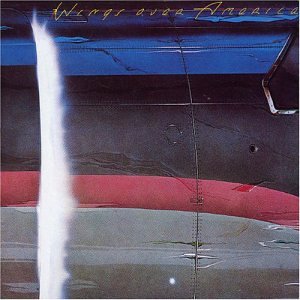 Not to be forgotten in a true “Recording History” of the song are the live recordings done by Paul throughout the years. Sometime in May or June of 1976, Wings recorded a live version that appears on “Wings Over America.” On the Deluxe Edition Box Set of this album, a different live version of the song recorded on June 14th, 1976 at Cow Palace in Daly City, California is included on a bonus CD. On September 2nd, 1990, a live recording of the song was recorded for his “Tripping The Live Fantastic” album. Sometime in April or May of 2002, the song was recorded for his album “Back In The US” And finally, during his performances at New York City’s “Citi Field” between July 15th and 22nd, he recorded a version for his “Good Evening New York City” album. Not to be forgotten in a true “Recording History” of the song are the live recordings done by Paul throughout the years. Sometime in May or June of 1976, Wings recorded a live version that appears on “Wings Over America.” On the Deluxe Edition Box Set of this album, a different live version of the song recorded on June 14th, 1976 at Cow Palace in Daly City, California is included on a bonus CD. On September 2nd, 1990, a live recording of the song was recorded for his “Tripping The Live Fantastic” album. Sometime in April or May of 2002, the song was recorded for his album “Back In The US” And finally, during his performances at New York City’s “Citi Field” between July 15th and 22nd, he recorded a version for his “Good Evening New York City” album.
Song Structure and Style
As for the structure, a typical Beatles model of ‘verse/ verse/ bridge/ verse/ bridge/ verse’ (or aababa) is utilized with a brief introduction and conclusion thrown in. While that sounds usual and a bit boring at this stage of The Beatles' game, the style of the song is anything but usual or boring.
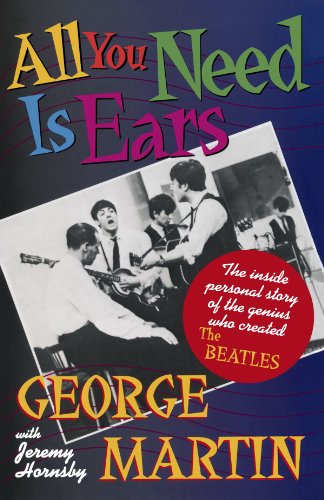 The intricate nuances Paul had already worked into the arrangement, as heard on his acoustic guitar track, were undoubtedly a big part of what inspired George Martin to suggest strings for the song, saying, “I’ve really got a feeling for it. I can hear it working.” In his book “All You Need Is Ears,” Martin explains: “The turning point probably came with the song ‘Yesterday’…That was when, as I can see in retrospect, I started to leave my hallmark on the music, when a style started to emerge which was partly of my making. It was on ‘Yesterday’ that I started to score their music…The added ingredient was no more nor less than a string quartet; and that, in the pop world of those days, was quite a step to take.” The intricate nuances Paul had already worked into the arrangement, as heard on his acoustic guitar track, were undoubtedly a big part of what inspired George Martin to suggest strings for the song, saying, “I’ve really got a feeling for it. I can hear it working.” In his book “All You Need Is Ears,” Martin explains: “The turning point probably came with the song ‘Yesterday’…That was when, as I can see in retrospect, I started to leave my hallmark on the music, when a style started to emerge which was partly of my making. It was on ‘Yesterday’ that I started to score their music…The added ingredient was no more nor less than a string quartet; and that, in the pop world of those days, was quite a step to take.”
A simple two-measure introduction of vamping acoustic guitar sets the stage, Paul thumping the bass notes on the one- and three- beats of both measures. This anticipatory intro gives you a sneaky suspicion that something extraordinary is about to happen which, if you can possibly remember the first time you heard the song, doesn’t fail to satisfy.
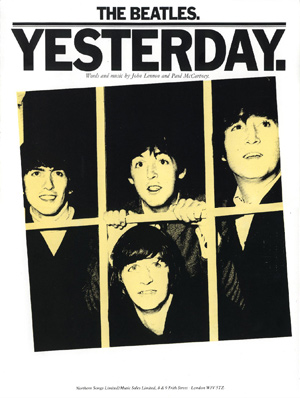 The verse is an unusual seven measures long but, because of the rhythmic phrasing, it doesn’t come across as awkward at all. The thumping bass notes of Paul’s guitar work are deliberate in their strategic placements, showing that he was well rehearsed beforehand. He even fits the final word with a planned syncopated beat (“yes-ter-day”) that breaks the rhythmic pattern found in the rest of the verse. The overall effect, lyrically and musically, is stunning – a vivid depiction of absolute loneliness as a result of an illusionary romance. The verse is an unusual seven measures long but, because of the rhythmic phrasing, it doesn’t come across as awkward at all. The thumping bass notes of Paul’s guitar work are deliberate in their strategic placements, showing that he was well rehearsed beforehand. He even fits the final word with a planned syncopated beat (“yes-ter-day”) that breaks the rhythmic pattern found in the rest of the verse. The overall effect, lyrically and musically, is stunning – a vivid depiction of absolute loneliness as a result of an illusionary romance.
Coincidentally (or maybe not), the second seven-measure verse begins with the word “suddenly” just as we suddenly hear the string quartet emerge to add a deeper sense of heartache to the already dour landscape. The instrumentalists stay relatively within the parameters of the chords with one notable exception being the subtle melody line that dances as a harmony with Paul’s lyric “yesterday came suddenly.”
 The first eight measure bridge occurs next, a notable feature being Paul’s strategic falling bass notes while his vocal melody line rises on the words “had to go,” the quartet allowing his finesse to be the focal point. This occurs again as the double-tracked vocal comes in on the lyric “something wrong,” followed by a descending viola line in the last measure. George Martin, possibly by suggestion from Paul, purposely wrote this viola line into the score to mimic what we would soon hear Paul sing in the previously recorded second bridge. The first eight measure bridge occurs next, a notable feature being Paul’s strategic falling bass notes while his vocal melody line rises on the words “had to go,” the quartet allowing his finesse to be the focal point. This occurs again as the double-tracked vocal comes in on the lyric “something wrong,” followed by a descending viola line in the last measure. George Martin, possibly by suggestion from Paul, purposely wrote this viola line into the score to mimic what we would soon hear Paul sing in the previously recorded second bridge.
A third verse is then heard which is identical in structure except for a new set of lyrics. The quartet plays nearly the same arrangement as in the second verse. The repeat of the bridge, however, reveals some interesting building in the score, a violin harmony to Paul’s line “had to go, I don’t know…” standing out as a classy touch. This is quickly followed by the “blue note” insistently included by Paul as described above. The violin harmony continues through the rest of the verse, which then ends with Paul taking center stage singing the descending line solo.
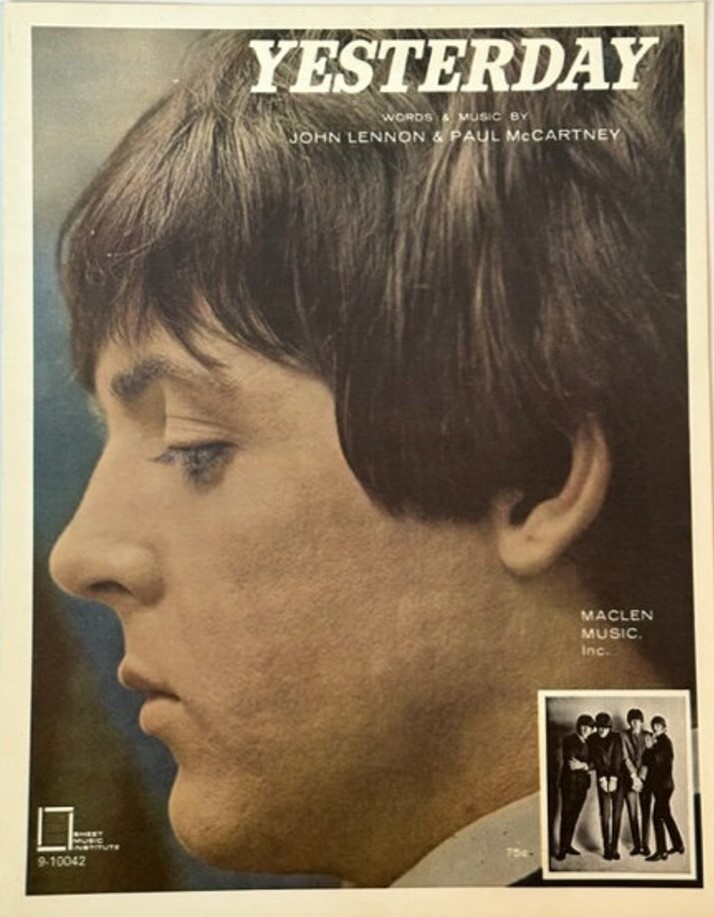 The quartet pulls out all the stops during the repeat of the third verse. A violin holds a single high note for the first five measures and the viola joins in midway through the third measure to begin a subtle lower harmony to Paul’s vocal melody. A repeat of the final two measures acts as a conclusion for the song although Paul chooses to hum instead of sing. He also dispenses with the thumping bass notes and sticks to a few higher strings played in a falling pattern. The quartet follows him down and punctuates the final two notes as it then fades away. History is made! The quartet pulls out all the stops during the repeat of the third verse. A violin holds a single high note for the first five measures and the viola joins in midway through the third measure to begin a subtle lower harmony to Paul’s vocal melody. A repeat of the final two measures acts as a conclusion for the song although Paul chooses to hum instead of sing. He also dispenses with the thumping bass notes and sticks to a few higher strings played in a falling pattern. The quartet follows him down and punctuates the final two notes as it then fades away. History is made!
John had some interesting commentary on the lyrics in 1980: “Paul wrote the lyrics to ‘Yesterday.’ Although the lyrics don’t resolve into any sense, they’re good lines. They certainly work, you know what I mean? They’re good, but if you read the whole song, it doesn’t say anything, you don’t know what happened. She left and he wishes it were yesterday – that much you get – but it doesn’t really resolve.”
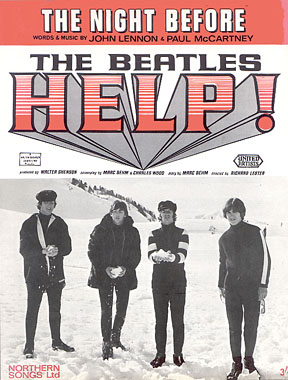 The story may not be complete, but it appears to be the expression of the emotion that is the song’s intent. She left and caught him totally off guard, him thinking that “love was such an easy game to play,” a game that he was winning. But since “she wouldn’t say” the reason for her leaving, he can only assume that he “said something wrong,” leaving him with feelings of regret. Rather than being proud, he now needs “a place to hide away” as a loser at love. While the same sentiments appear to have just recently been expressed in Paul’s “The Night Before” earlier in the year, this is hardly a re-write. You could more accurately say that the former song was a first draft at expressing this surprising experience. The story may not be complete, but it appears to be the expression of the emotion that is the song’s intent. She left and caught him totally off guard, him thinking that “love was such an easy game to play,” a game that he was winning. But since “she wouldn’t say” the reason for her leaving, he can only assume that he “said something wrong,” leaving him with feelings of regret. Rather than being proud, he now needs “a place to hide away” as a loser at love. While the same sentiments appear to have just recently been expressed in Paul’s “The Night Before” earlier in the year, this is hardly a re-write. You could more accurately say that the former song was a first draft at expressing this surprising experience.
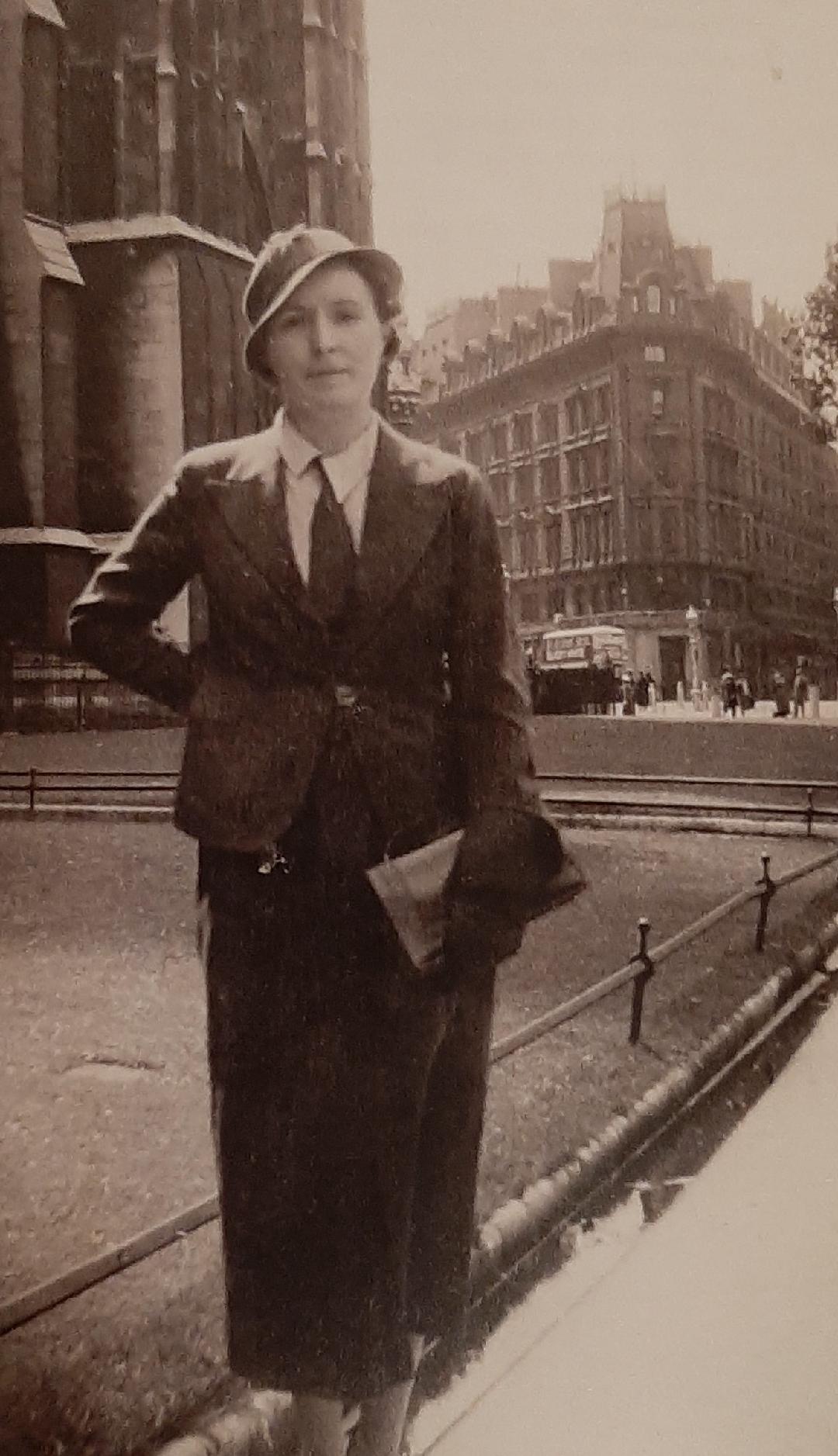 In his book "The Lyrics," Paul expresses: "Every time I come to the line 'I'm not half the man I used to be,' I remember I'd lost my mother about eight years before that. It's been suggested to me that this is a 'losing my mother' song, to which I've always said, 'No, I don't believe so.' But, you know, the more I think about it - 'Why she had to go I don't know, she wouldn't say' - I can see that that might have been part of the background, the unconsciousness behind this song after all. It was so strange that the loss of our mother to cancer was simply not discussed. We barely knew what cancer was, but I'm now not surprised that the whole experience surfaced in this song where sweetness competes with a pain you can't quite descibe." In his book "The Lyrics," Paul expresses: "Every time I come to the line 'I'm not half the man I used to be,' I remember I'd lost my mother about eight years before that. It's been suggested to me that this is a 'losing my mother' song, to which I've always said, 'No, I don't believe so.' But, you know, the more I think about it - 'Why she had to go I don't know, she wouldn't say' - I can see that that might have been part of the background, the unconsciousness behind this song after all. It was so strange that the loss of our mother to cancer was simply not discussed. We barely knew what cancer was, but I'm now not surprised that the whole experience surfaced in this song where sweetness competes with a pain you can't quite descibe."
Paul continues: "A while back, someone asked me whether I relate differently to my songs as I grow older. A recording doesn't change, but of course we continue to age and grow, and as you get older, your relationship to a song can grow too. When I wrote 'Yesterday,' I had just moved to London from Liverpool, and I was starting to see a whole new world of possiblities open up before me. But all my yesterdays covered a pretty small period at that point. Now the song seems even more significant - yes, more poignant - because of the time that has passed since I wrote it. I must admit, that's an aspect of writing songs and playing music that I really like."
The simplistic depiction in the lyrics is found to be totally suitable to this beautiful piece of music, no doubt becoming a template for love songs to this day. Right down to beginning and ending each verse with the same word, whether it be “yesterday” or “suddenly,” the intricate complexity was perfected by the composer. Nearly perfected, anyway. Call me a stickler but, in the narrative, since he was still with his girl 24 hours ago, shouldn’t it read “today came suddenly” instead of “yesterday came suddenly”? :-)
American Releases
"The (UK) record label wanted to release it as a single," Paul recalled about the song "Yesterday" in his book "The Lyrics." "We wouldn't let them do it in the UK, since we were a rock and roll band, but we let them get away with it in the US because we didn't live there." On September 13th, 1965, Capitol released “Yesterday” as its 11th American single; one day after the song was aired on the season debut of “The Ed Sullivan Show” on September 12th, 1965. While the television studio audience reaction was rather quiet and somewhat shocked, fans knew what to look for the next day in their favorite record shops. And they certainly did, the record topping the Billboard Hot 100 for four straight weeks and selling a million copies.
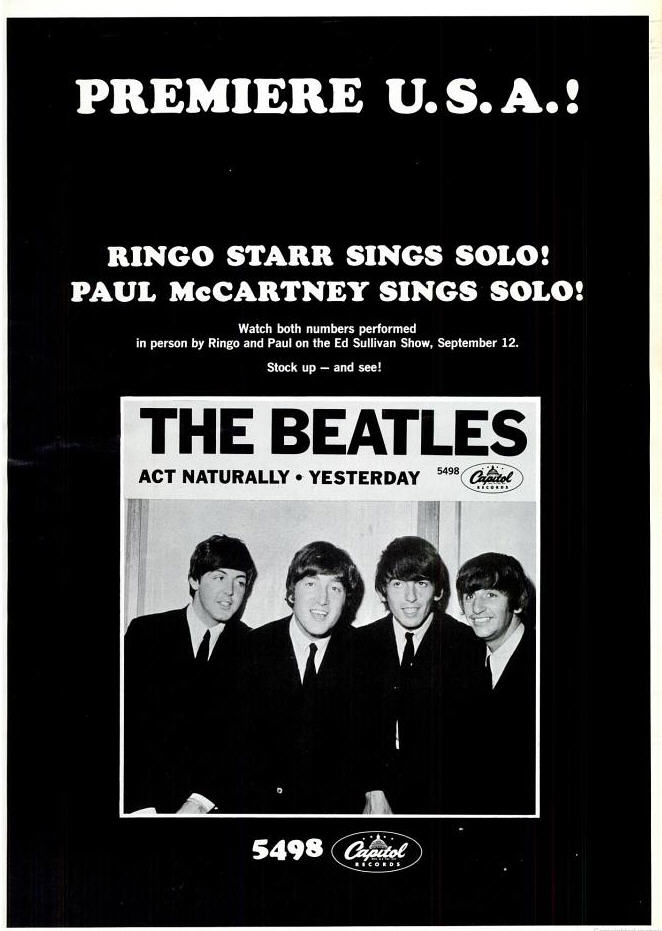 Capitol was smart enough to single this track out from the British “Help!” album for release as their next hit, but maybe they weren’t as astute as we think. The other side of this single was “Act Naturally,” which also got its first exposure on the same “Ed Sullivan Show” program the day before. Full page advertisements that Capitol ran in Billboard magazine to promote the next single actually highlight “Act Naturally” before “Yesterday.” The ad reads: “Ringo Starr sings solo! Paul McCartney sings solo! Watch both numbers performed in person by Ringo and Paul on the Ed Sullivan Show, September 12. Stock up – and see!” What they "saw" was that “Yesterday” made a much bigger splash than “Act Naturally,” which they obviously were hedging their bets on being the next big hit. Capitol was smart enough to single this track out from the British “Help!” album for release as their next hit, but maybe they weren’t as astute as we think. The other side of this single was “Act Naturally,” which also got its first exposure on the same “Ed Sullivan Show” program the day before. Full page advertisements that Capitol ran in Billboard magazine to promote the next single actually highlight “Act Naturally” before “Yesterday.” The ad reads: “Ringo Starr sings solo! Paul McCartney sings solo! Watch both numbers performed in person by Ringo and Paul on the Ed Sullivan Show, September 12. Stock up – and see!” What they "saw" was that “Yesterday” made a much bigger splash than “Act Naturally,” which they obviously were hedging their bets on being the next big hit.
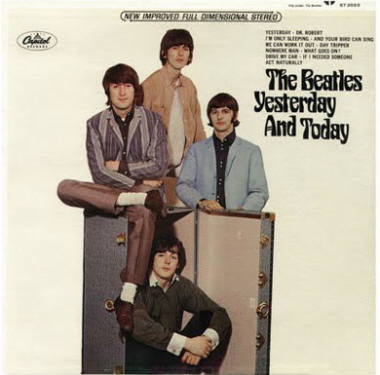 In fact, it was such a big hit that Capitol decided to name their next make-shift Beatles album after it. “Yesterday…And Today” was released on June 20th, 1966, reaching the top spot after only four weeks on the Billboard album chart and staying there for five weeks in a row. "Yesterday...And Today" was then released on January 21st, 2014, as an individual compact disc, both the mono and stereo versions of the album being included on a single CD. Incidentally, this release featured both the "trunk" cover and the "butcher" cover. In fact, it was such a big hit that Capitol decided to name their next make-shift Beatles album after it. “Yesterday…And Today” was released on June 20th, 1966, reaching the top spot after only four weeks on the Billboard album chart and staying there for five weeks in a row. "Yesterday...And Today" was then released on January 21st, 2014, as an individual compact disc, both the mono and stereo versions of the album being included on a single CD. Incidentally, this release featured both the "trunk" cover and the "butcher" cover.
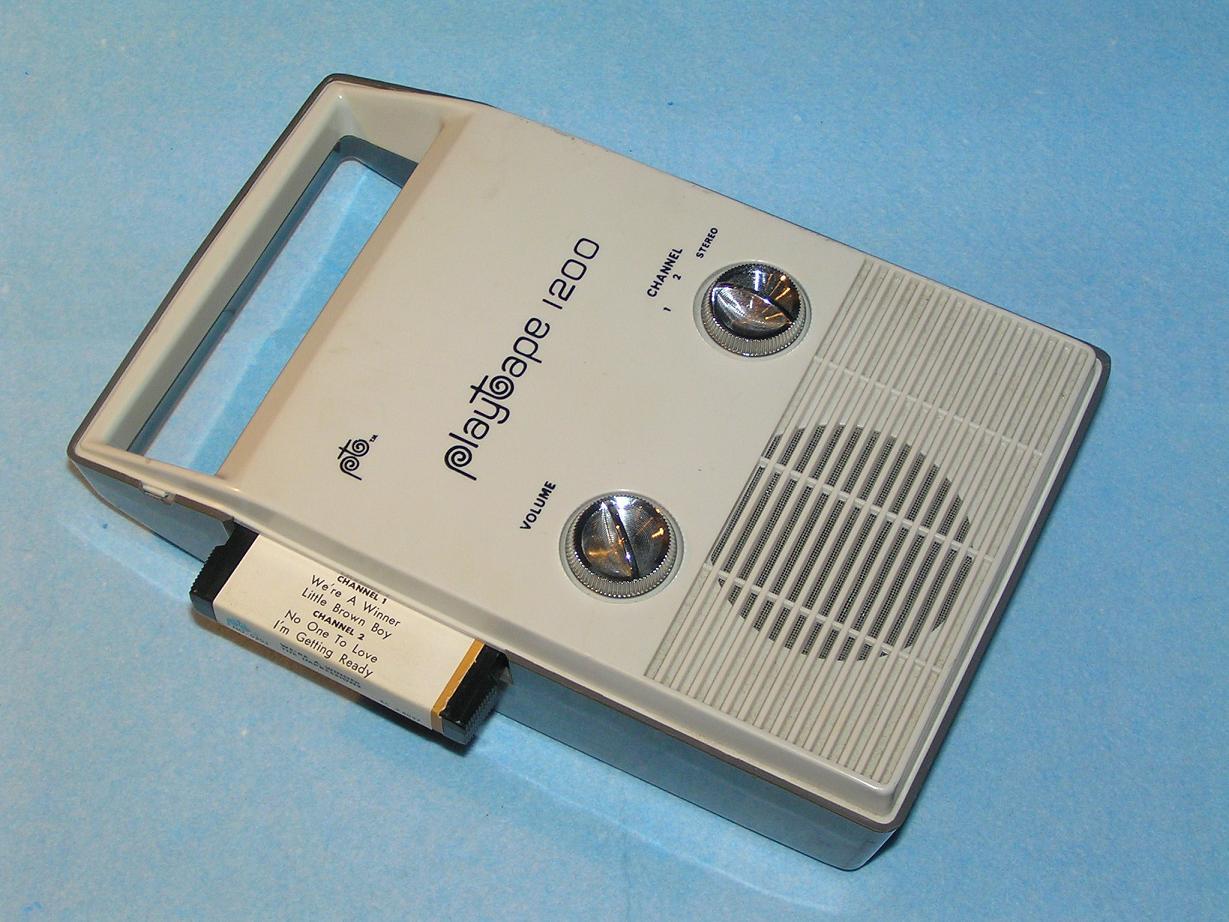 Sometime in 1967, Capitol released Beatles music on a brand new but short-lived format called "Playtapes." These tape cartridges did not have the capability to include entire albums, so two truncated four-song versions of "Yesterday...And Today" were released in this portable format, "Yesterday" being on one of them. These "Playtapes" are highly collectable today. Sometime in 1967, Capitol released Beatles music on a brand new but short-lived format called "Playtapes." These tape cartridges did not have the capability to include entire albums, so two truncated four-song versions of "Yesterday...And Today" were released in this portable format, "Yesterday" being on one of them. These "Playtapes" are highly collectable today.
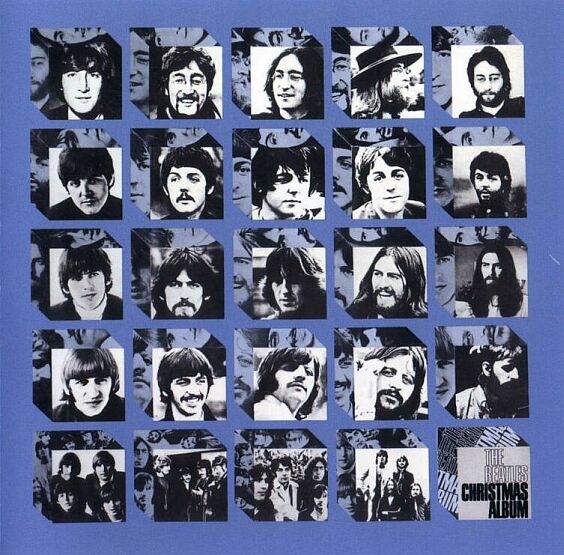 Sometime in the spring of 1971, the official Beatles Fan Club in the US sent out a full-length Apple album to all American members of the fan club entitled "The Beatles' Christmas Album." This album consisted of all seven Christmas message discs that the group recorded throughout their career, from 1963 through 1969. Since the news that The Beatles had broken up was announced by the spring of 1970, there was no need for a 1970 Christmas message to be recorded for their fans. This album was the last record to be sent to their fans, the 1965 recording entitled "The Beatles Third Christmas Record" being included therein, which contained the silly version of "Yesterday" as described above. Its inclusion on this album was the first time US fans heard this recording since the original 1965 Christmas record never got sent to members of the American fan club at that time. This highly collectible album has been bootleged extensively, so legitimate copies are very rare and very valuable. Sometime in the spring of 1971, the official Beatles Fan Club in the US sent out a full-length Apple album to all American members of the fan club entitled "The Beatles' Christmas Album." This album consisted of all seven Christmas message discs that the group recorded throughout their career, from 1963 through 1969. Since the news that The Beatles had broken up was announced by the spring of 1970, there was no need for a 1970 Christmas message to be recorded for their fans. This album was the last record to be sent to their fans, the 1965 recording entitled "The Beatles Third Christmas Record" being included therein, which contained the silly version of "Yesterday" as described above. Its inclusion on this album was the first time US fans heard this recording since the original 1965 Christmas record never got sent to members of the American fan club at that time. This highly collectible album has been bootleged extensively, so legitimate copies are very rare and very valuable.
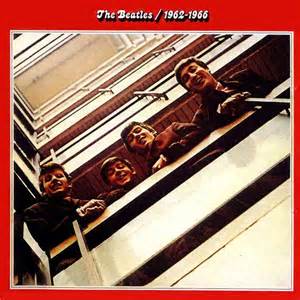 Two compilation albums of the '70s contained the song, the first being “The Beatles/1962-1966” (aka “The Red Album”) which has become a standard “greatest hits” package for multiple decades despite the fact that it only peaked at #3 on the Billboard albums chart at the time of its release, April 2nd, 1973. With its companion album “The Beatles/1967-1970” at #1 at that exact time, I’m sure The Beatles’ feelings weren’t too hurt. “The Red Album” was released on compact disc in 1993, substituting the new 1986 stereo mix of “Yesterday” for the 1965 stereo mix as heard on the vinyl release. The CD was then remastered and re-released on August 10th, 2010. Two compilation albums of the '70s contained the song, the first being “The Beatles/1962-1966” (aka “The Red Album”) which has become a standard “greatest hits” package for multiple decades despite the fact that it only peaked at #3 on the Billboard albums chart at the time of its release, April 2nd, 1973. With its companion album “The Beatles/1967-1970” at #1 at that exact time, I’m sure The Beatles’ feelings weren’t too hurt. “The Red Album” was released on compact disc in 1993, substituting the new 1986 stereo mix of “Yesterday” for the 1965 stereo mix as heard on the vinyl release. The CD was then remastered and re-released on August 10th, 2010.
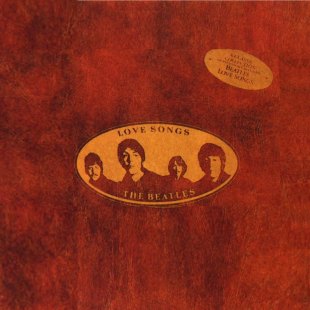 The second compilation album of the decade to contain the song was “Love Songs,” “Yesterday” being an obvious choice for this collection. In fact, it was the very first song on the album, which was released on October 21st, 1977 and reached #24 on the Billboard album chart. The second compilation album of the decade to contain the song was “Love Songs,” “Yesterday” being an obvious choice for this collection. In fact, it was the very first song on the album, which was released on October 21st, 1977 and reached #24 on the Billboard album chart.
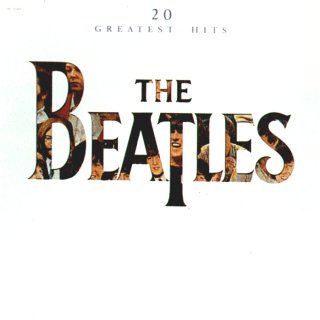 October 11th, 1982 saw yet another Capitol compilation album include the song, this one being a single album entitled “20 Greatest Hits.” The British version of the album did not contain the song because it wasn’t released as a single in their home country, but since it was in the US, it earned its rightful place in this collection. Undoubtedly because of being in the beginnings of the MTV era, the album only peaked at #50 on the Billboard chart. October 11th, 1982 saw yet another Capitol compilation album include the song, this one being a single album entitled “20 Greatest Hits.” The British version of the album did not contain the song because it wasn’t released as a single in their home country, but since it was in the US, it earned its rightful place in this collection. Undoubtedly because of being in the beginnings of the MTV era, the album only peaked at #50 on the Billboard chart.
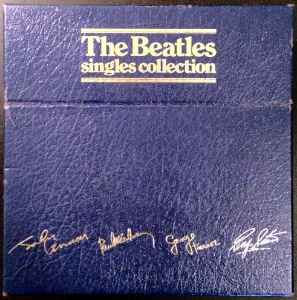 On December 6th, 1982, the vinyl box set "The Beatles Singles Collection" was released worldwide that included a single version of "Yesterday" that was new to the US market. The song was never released as a single in the UK until February of 1976 where it reached #8 in their home country with "I Should Have Known Better" as the b-side. Because this single was then considered an official Beatles release in the UK, it was included in this box set, although it was dropped when it was reissued as a CD box set in 1992 and as a new vinyl box set in 2019. On December 6th, 1982, the vinyl box set "The Beatles Singles Collection" was released worldwide that included a single version of "Yesterday" that was new to the US market. The song was never released as a single in the UK until February of 1976 where it reached #8 in their home country with "I Should Have Known Better" as the b-side. Because this single was then considered an official Beatles release in the UK, it was included in this box set, although it was dropped when it was reissued as a CD box set in 1992 and as a new vinyl box set in 2019.
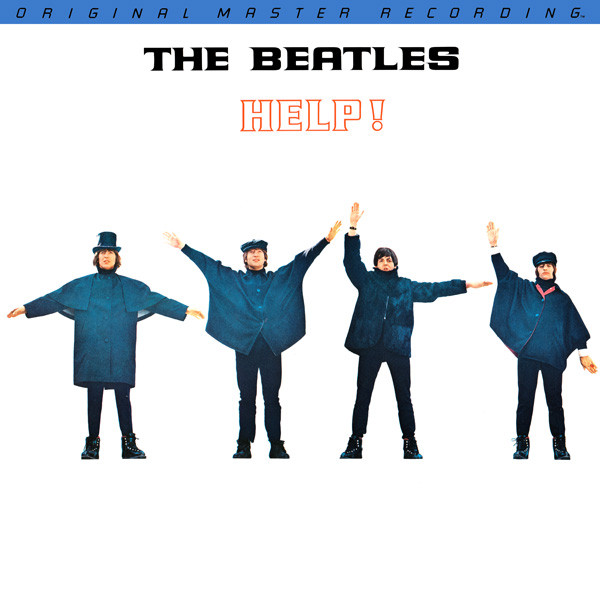 The first time the original British "Help!" album was made available in the US was the "Original Master Recording" vinyl edition released through Mobile Fidelity Sound Lab in January of 1986. This album included "Yesterday" and was prepared utilizing half-speed mastering technology from the original master tape on loan from EMI. This version of the album was only available for a short time and is quite collectible today. The first time the original British "Help!" album was made available in the US was the "Original Master Recording" vinyl edition released through Mobile Fidelity Sound Lab in January of 1986. This album included "Yesterday" and was prepared utilizing half-speed mastering technology from the original master tape on loan from EMI. This version of the album was only available for a short time and is quite collectible today.
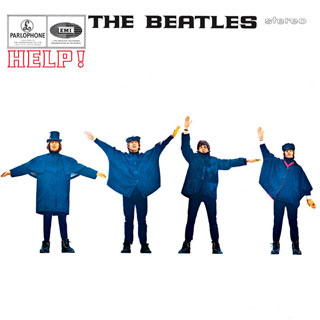 “Yesterday” was released on compact disc for the first time on the “Help!” album on April 30th, 1987, the vinyl edition coming out on July 21st, 1987. These releases contained the new George Martin stereo mix of 1986, as did the remastered CD release on September 9th, 2009 and its remastered vinyl version released on November 13th, 2012. “Yesterday” was released on compact disc for the first time on the “Help!” album on April 30th, 1987, the vinyl edition coming out on July 21st, 1987. These releases contained the new George Martin stereo mix of 1986, as did the remastered CD release on September 9th, 2009 and its remastered vinyl version released on November 13th, 2012.
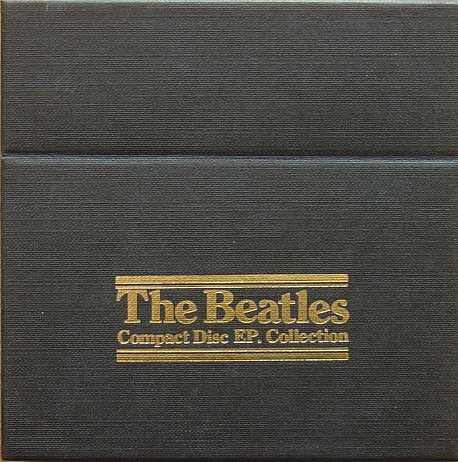 The mono mix of “Yesterday” was also released on compact disc in the US on the June 30th, 1992 released box set entitled “Compact Disc EP Collection.” This highly priced set included individual CDs to replicate all of the successful EPs that were released in Britain. The British four track “Yesterday” EP, as originally released on March 4th, 1966, was included in its entirety. The mono mix of “Yesterday” was also released on compact disc in the US on the June 30th, 1992 released box set entitled “Compact Disc EP Collection.” This highly priced set included individual CDs to replicate all of the successful EPs that were released in Britain. The British four track “Yesterday” EP, as originally released on March 4th, 1966, was included in its entirety.
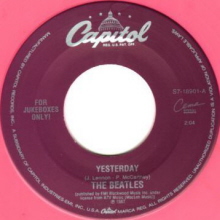 A re-release of the single came out on January 24th, 1996 on the Capitol “Cema Series” for jukeboxes only. Uniquely, it was printed on pink vinyl in a rather limited quantity, which pretty much assures its increased value as the years progress. A re-release of the single came out on January 24th, 1996 on the Capitol “Cema Series” for jukeboxes only. Uniquely, it was printed on pink vinyl in a rather limited quantity, which pretty much assures its increased value as the years progress.
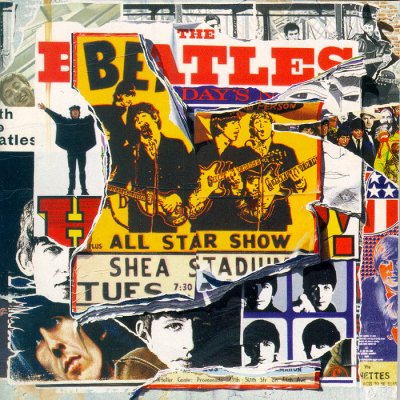 Very shortly afterward, on March 18th, 1996, Apple released “Anthology 2,” which features two versions of “Yesterday.” The first is the previously unheard “take one” of Paul running through the song on acoustic guitar and vocals with him quickly instructing George Harrison about the chords of the song. The second version was their live performance of the song on August 1st, 1965 at the ABC Theatre in Blackpool for the British TV show “Blackpool Night Out.” These were only two of many outstanding elements on this incredible compilation which debuted in the #1 spot on the Billboard album chart and sold well over two million copies. Very shortly afterward, on March 18th, 1996, Apple released “Anthology 2,” which features two versions of “Yesterday.” The first is the previously unheard “take one” of Paul running through the song on acoustic guitar and vocals with him quickly instructing George Harrison about the chords of the song. The second version was their live performance of the song on August 1st, 1965 at the ABC Theatre in Blackpool for the British TV show “Blackpool Night Out.” These were only two of many outstanding elements on this incredible compilation which debuted in the #1 spot on the Billboard album chart and sold well over two million copies.
In promotion of the “Anthology 2” album came the CD Sampler single disc which was sent to radio stations for airplay. The studio “take one” of “Yesterday” was included therein.
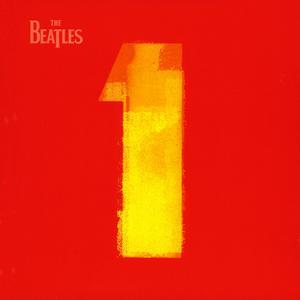 The idea of having all their number one hits on a single disc was revisited in the year 2000 resulting in the CD “Beatles 1,” which was released on November 13th of that year. Although the 1982 album “20 Greatest Hits” didn’t make many sales waves, the timing was definitely right this time around. It sold around 595,000 copies in the first week, debuting in the #1 spot on the Billboard album chart and achieving a total of eight weeks at the top. By 2005, it achieved “diamond” status, eventually selling well over 11 million copies in the US alone. George Martin’s 1986 stereo mix of “Yesterday” is featured on this release. A remastered version of this album was released in September of 2011 and a newer mixed version (mixed by Giles Martin) was released on November 6th, 2015. The idea of having all their number one hits on a single disc was revisited in the year 2000 resulting in the CD “Beatles 1,” which was released on November 13th of that year. Although the 1982 album “20 Greatest Hits” didn’t make many sales waves, the timing was definitely right this time around. It sold around 595,000 copies in the first week, debuting in the #1 spot on the Billboard album chart and achieving a total of eight weeks at the top. By 2005, it achieved “diamond” status, eventually selling well over 11 million copies in the US alone. George Martin’s 1986 stereo mix of “Yesterday” is featured on this release. A remastered version of this album was released in September of 2011 and a newer mixed version (mixed by Giles Martin) was released on November 6th, 2015.
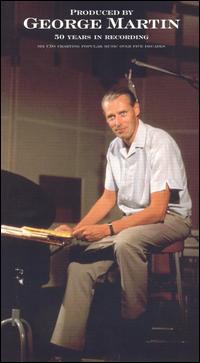 A 6 CD box set was released on July 17th, 2001 entitled "Produced By George Martin," which contained a huge selection of examples of George Martin's production work throughout his career. The Beatles' "Yesterday" was an expected selection on this set, the song being contained on "Disc Three (That Was The Decade That Was)." A 6 CD box set was released on July 17th, 2001 entitled "Produced By George Martin," which contained a huge selection of examples of George Martin's production work throughout his career. The Beatles' "Yesterday" was an expected selection on this set, the song being contained on "Disc Three (That Was The Decade That Was)."
November 20th, 2006 was the release date of the Cirque du Soleil soundtrack “Love,” which featured the above mentioned flawless stereo mix of “Yesterday” (with an instrumental “Blackbird” introduction). Reaching #4 on the Billboard album chart, it sold over two million copies.
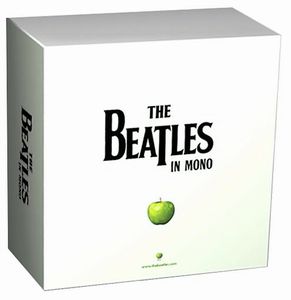 In order to hear the original mono and stereo mixes of the song, one needs the box set “The Beatles In Mono” containing both, which was released on September 9th, 2009. In order to hear the original mono and stereo mixes of the song, one needs the box set “The Beatles In Mono” containing both, which was released on September 9th, 2009.
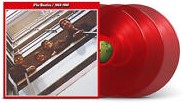 A 50th Anniversay edition of the compilation album "The Beatles / 1962 - 1966" (aka "The Red Album") was released on November 10th, 2023, the newly AI created stereo mix of "Yesterday," as detailed above, being included. This expanded release included 12 additional songs for a total of 38 tracks, and was made available as a double CD and as a triple vinyl release on both black and red vinyl. A 50th Anniversay edition of the compilation album "The Beatles / 1962 - 1966" (aka "The Red Album") was released on November 10th, 2023, the newly AI created stereo mix of "Yesterday," as detailed above, being included. This expanded release included 12 additional songs for a total of 38 tracks, and was made available as a double CD and as a triple vinyl release on both black and red vinyl.
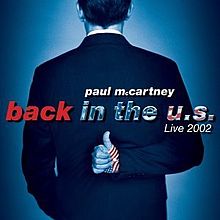 Live Paul McCartney renditions of the song can also be heard on “Wings Over America” (released on December 10th, 1976), “Tripping The Live Fantastic” (released November 5th, 1990), "The Concert For New York City" (released November 27th, 2001), “Back In The US” (released on November 26th, 2002) and “Good Evening New York City” (released on November 17th, 2009). Live Paul McCartney renditions of the song can also be heard on “Wings Over America” (released on December 10th, 1976), “Tripping The Live Fantastic” (released November 5th, 1990), "The Concert For New York City" (released November 27th, 2001), “Back In The US” (released on November 26th, 2002) and “Good Evening New York City” (released on November 17th, 2009).
Live Performances
Listening to the magnificent results of the recording of “Yesterday,” with the emotional impact of the string quartet, no doubt everyone in The Beatles circle realized they had something they couldn’t help but want to promote. And promote they did! Although live performances by the group were to wind down just over a year later, they spent most of the remainder of their touring life showcasing the song.
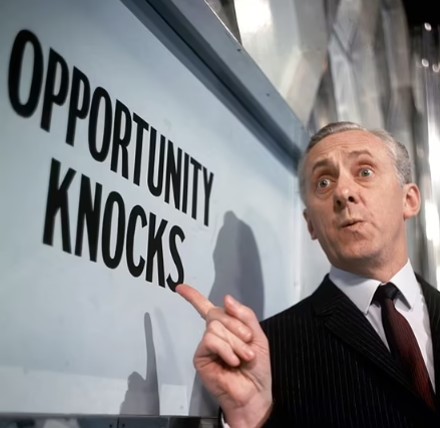 Their first public performance of “Yesterday” was on August 1st, 1965 (five days before it was released on the “Help!” album in Britain) at the ABC Theatre in Blackpool for the live TV show “Blackpool Night Out.” Being the fifth song of their six song set, George Harrison introduces the song with the words “For Paul McCartney of Liverpool, Opportunity Knocks,” in recognition of the popular British talent show. The other Beatles then exit the stage leaving Paul alone to perform the song solo on acoustic guitar accompanied by a pre-recorded orchestra. Afterwards, the rest of the group re-enter the stage and John comments, “Thank you, Ringo, that was wonderful.” This entire performance is available on “Anthology 2.” Their first public performance of “Yesterday” was on August 1st, 1965 (five days before it was released on the “Help!” album in Britain) at the ABC Theatre in Blackpool for the live TV show “Blackpool Night Out.” Being the fifth song of their six song set, George Harrison introduces the song with the words “For Paul McCartney of Liverpool, Opportunity Knocks,” in recognition of the popular British talent show. The other Beatles then exit the stage leaving Paul alone to perform the song solo on acoustic guitar accompanied by a pre-recorded orchestra. Afterwards, the rest of the group re-enter the stage and John comments, “Thank you, Ringo, that was wonderful.” This entire performance is available on “Anthology 2.”
Next came the taping of their fourth and final studio appearance on the “Ed Sullivan Show” in the US. The taping was on August 14th, 1965 and the set comprised the same six songs they played for “Blackpool Night Out” two weeks prior. After Paul’s performance of “Yesterday,” also played with a pre-taped violin track, John returns with the words, “Thank you Paul, that was just like him.”
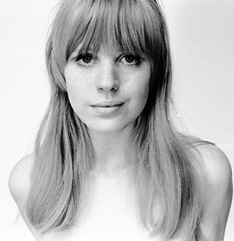 On November 1st and 2nd, 1965, The Beatles were in Manchester at the Granada TV Centre filming a British TV special entitled “The Music Of Lennon & McCartney.” During this time Paul was filmed miming the first verse of “Yesterday” which was then segued into a completion of the song by Marianne Faithfull, who had a minor Top 40 hit in Britain with her rendition. This special was first aired in Britain on December 17th, 1965. On November 1st and 2nd, 1965, The Beatles were in Manchester at the Granada TV Centre filming a British TV special entitled “The Music Of Lennon & McCartney.” During this time Paul was filmed miming the first verse of “Yesterday” which was then segued into a completion of the song by Marianne Faithfull, who had a minor Top 40 hit in Britain with her rendition. This special was first aired in Britain on December 17th, 1965.
On December 3rd, 1965, The Beatles began their final British tour, which lasted only until December 12th of that year. Among the eight cities visited on this tour was Liverpool, this being the last time the group played in their hometown. “Yesterday” was part of their set on this brief tour which, strangely enough, featured Paul accompanying himself on an electric organ.
Their last international tour began on June 24th, 1966, an excursion which took them to West Germany, Japan and The Philippines. This tour, which only lasted until July 4th of that year, included “Yesterday” in their set list. Paul succumbed to playing bass on the track with a full electric guitars / drums arrangement from the entire group (no pre-taped violins). This best represents what the song would have sounded like if they had kept to their usual instrumentation at the time, many fans preferring this version in retrospect. Their Japan concert performance of the song exists and can be seen from many sources today.
 The Beatles' final US tour, which was also their final tour anywhere, began on August 12th, 1966 in Chicago and, after hitting Detroit, Cleveland, Philadelphia, Shea Stadium in New York City and many other locations, ended at Candlestick Park in San Francisco on August 29th of that year. The very same set list from their previous international tour was performed, the full-band electric version of “Yesterday” still being included. The Beatles' final US tour, which was also their final tour anywhere, began on August 12th, 1966 in Chicago and, after hitting Detroit, Cleveland, Philadelphia, Shea Stadium in New York City and many other locations, ended at Candlestick Park in San Francisco on August 29th of that year. The very same set list from their previous international tour was performed, the full-band electric version of “Yesterday” still being included.
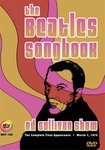 With the imminent news of The Beatles' breakup, a special “Beatles Songbook” episode of “The Ed Sullivan Show” aired on March 1st, 1970. Various guests performed live renditions of Beatles songs, including Dionne Warwick, Peggy Lee, and even The Muppets (doing “Octopus’s Garden”), while footage of the soon-to-be-released film “Let It Be” was aired (the songs “Two Of Us” and “Let It Be”) as well as the still-picture video Paul produced for “Maybe I’m Amazed.” Interestingly, a recently taped performance of a sweaty (and very much alive) Paul McCartney was included doing a new acoustic version of “Yesterday.” With the imminent news of The Beatles' breakup, a special “Beatles Songbook” episode of “The Ed Sullivan Show” aired on March 1st, 1970. Various guests performed live renditions of Beatles songs, including Dionne Warwick, Peggy Lee, and even The Muppets (doing “Octopus’s Garden”), while footage of the soon-to-be-released film “Let It Be” was aired (the songs “Two Of Us” and “Let It Be”) as well as the still-picture video Paul produced for “Maybe I’m Amazed.” Interestingly, a recently taped performance of a sweaty (and very much alive) Paul McCartney was included doing a new acoustic version of “Yesterday.”
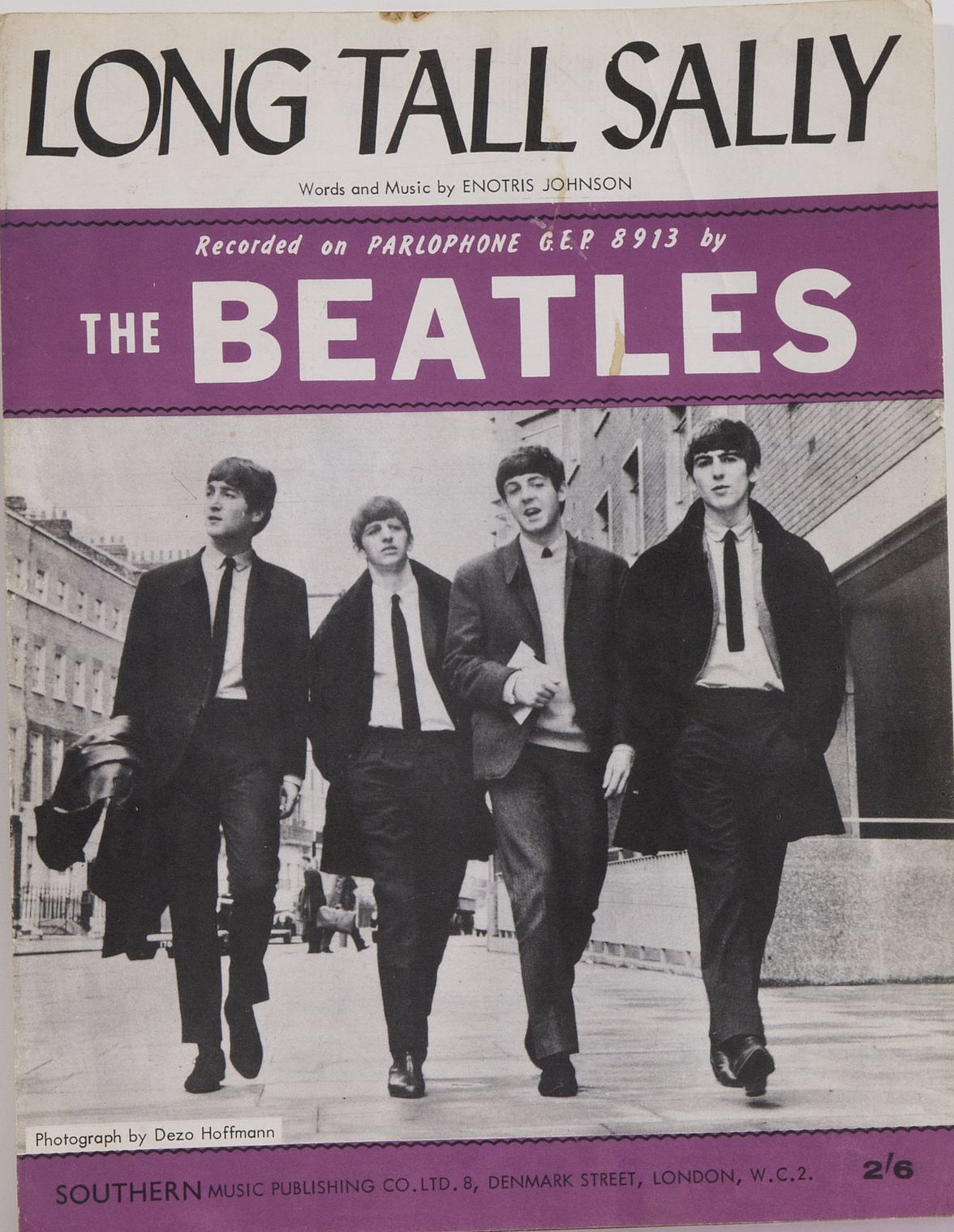 While McCartney refrained from performing any Beatles material with his new band Wings for the first few years of its existence (except for “Long Tall Sally”), the personal ban was lifted for their 1975/76 “Wings Over The World” tour. Both their 1975 and 1976 sets included “Yesterday,” albeit in a truncated version. After he realized that he wasn’t repeating the bridge and final verse of the original version, he remarked, “I quite like that…not too precious with it.” While McCartney refrained from performing any Beatles material with his new band Wings for the first few years of its existence (except for “Long Tall Sally”), the personal ban was lifted for their 1975/76 “Wings Over The World” tour. Both their 1975 and 1976 sets included “Yesterday,” albeit in a truncated version. After he realized that he wasn’t repeating the bridge and final verse of the original version, he remarked, “I quite like that…not too precious with it.”
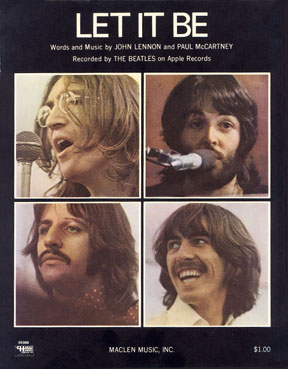 The final Wings “UK Tour 1979” in promotion of their album “Back To The Egg” also featured their rendition of “Yesterday.” Three other Beatles songs were also featured, these being “Let It Be,” “Got To Get You Into My Life” and even “The Fool On The Hill.” Obviously, Paul was “getting closer” to coming to terms with his Beatles past. The final Wings “UK Tour 1979” in promotion of their album “Back To The Egg” also featured their rendition of “Yesterday.” Three other Beatles songs were also featured, these being “Let It Be,” “Got To Get You Into My Life” and even “The Fool On The Hill.” Obviously, Paul was “getting closer” to coming to terms with his Beatles past.
The song then became a regular for Paul’s solo tours of later years, beginning with his “World Tour” of 1989/1990. “Yesterday” was surprisingly omitted from his “Unplugged Tour” of 1991, but thereafter it was included in every tour he’s done since, mostly toward the end of the show or as an encore.
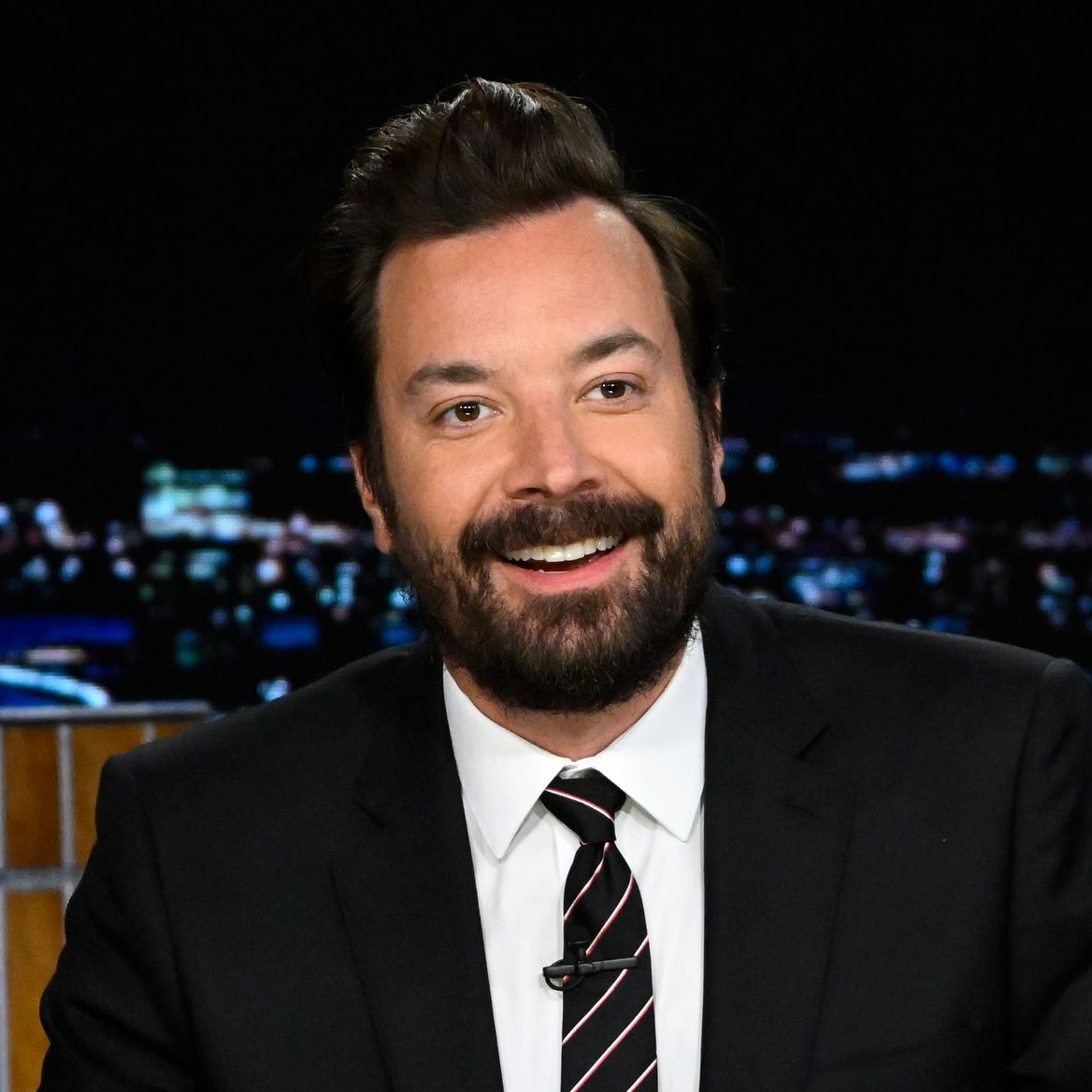 Other isolated performances of the song occurred, such as a partial rendition heard at the end of his October 23rd, 1984 appearance on “The Tonight Show With Johnny Carson.” (He started to play it and, because they were running out of time, played a verse of “You Are My Sunshine” instead.) He also performed the song on October 20th, 2001 at "The Concert For New York City," a benefit show in response to the September 11th attacks that year. Another noteworthy version was on “Late Night With Jimmy Fallon” where Paul and the host sang a duet of the (supposed) original lyrics of the song as "Scrambled Eggs." Also, on his 2021 Hulu documentary series "McCartney 3,2,1," Paul quickly demonstrated on piano how he fleshed out the song from his memory after waking up from the dream that produced the song. Other isolated performances of the song occurred, such as a partial rendition heard at the end of his October 23rd, 1984 appearance on “The Tonight Show With Johnny Carson.” (He started to play it and, because they were running out of time, played a verse of “You Are My Sunshine” instead.) He also performed the song on October 20th, 2001 at "The Concert For New York City," a benefit show in response to the September 11th attacks that year. Another noteworthy version was on “Late Night With Jimmy Fallon” where Paul and the host sang a duet of the (supposed) original lyrics of the song as "Scrambled Eggs." Also, on his 2021 Hulu documentary series "McCartney 3,2,1," Paul quickly demonstrated on piano how he fleshed out the song from his memory after waking up from the dream that produced the song.
Conclusion
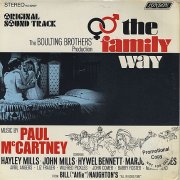 Despite his quotes from the '60s that hint at his involvement in the writing of the song, John Lennon ended up describing “Yesterday” as “Paul’s song and Paul’s baby.” Therefore, for all intents and purposes, Paul McCartney not only fully wrote the song but is the only Beatle playing on the actual recording. While his actual solo career didn’t start for another five years (or two years if you count his soundtrack compositions for the movie “The Family Way”), it could well have started at this point if the "powers that be" had determined so. Despite his quotes from the '60s that hint at his involvement in the writing of the song, John Lennon ended up describing “Yesterday” as “Paul’s song and Paul’s baby.” Therefore, for all intents and purposes, Paul McCartney not only fully wrote the song but is the only Beatle playing on the actual recording. While his actual solo career didn’t start for another five years (or two years if you count his soundtrack compositions for the movie “The Family Way”), it could well have started at this point if the "powers that be" had determined so.
“It really wasn’t a Beatles record and I discussed this with Brian Epstein,” George Martin explains. When speaking to Brian at the time, he asked: “’You know, this is Paul’s song…Shall we call it Paul McCartney?’ He said, ‘No, whatever we do we are not splitting up The Beatles…This is The Beatles – we don’t differentiate.’…So even though none of the others appeared on the record, it was still The Beatles – that was the creed of the day.”
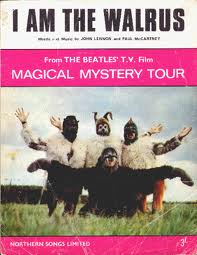 So as far as the public knew, it was a full-fledged Lennon / McCartney composition that Paul just happened to have sung. “I sat in a restaurant in Spain and the violinist insisted on playing ‘Yesterday’ right in my ear,” John relates. “Then he asked me to sign the violin. I didn’t know what to say so I said, ‘OK,’ and I signed it…One day he’s going to find out that Paul wrote it…But I guess he couldn’t have gone from table to table playing ‘I Am The Walrus.’” So as far as the public knew, it was a full-fledged Lennon / McCartney composition that Paul just happened to have sung. “I sat in a restaurant in Spain and the violinist insisted on playing ‘Yesterday’ right in my ear,” John relates. “Then he asked me to sign the violin. I didn’t know what to say so I said, ‘OK,’ and I signed it…One day he’s going to find out that Paul wrote it…But I guess he couldn’t have gone from table to table playing ‘I Am The Walrus.’”
Song Summary
“Yesterday”
Written by: John Lennon / Paul McCartney
-
Song Written: November, 1964 – June, 1965
-
Song Recorded: June 14 & 17, 1965
-
First US Release Date: September 13, 1965
-
US Single Release: Capitol #5498
-
Highest Chart Position: #1 (4 weeks)
-
-
British Album Release: Parlophone #PCS 3071 “Help!”
-
Length: 2:04
-
Key: F major
-
Producer: George Martin
-
Engineers: Geoff Emerick, Phil McDonald
Instrumentation (most likely):
-
Paul McCartney - Lead Vocals, Rhythm Guitar (1964 Epiphone Texan FT-79)
-
Tony Gilbert – First Violin
-
Sidney Sax - Second Violin
-
Francisco Gabarro - Cello
-
Kenneth Essex – Viola
Written and compiled by Dave Rybaczewski
|
IF YOU WOULD LIKE TO MAKE A DONATION TO KEEP THIS WEBSITE UP AND RUNNING, PLEASE CLICK BELOW!
Sign Up Below for our MONTHLY BEATLES TRIVIA QUIZ!
|